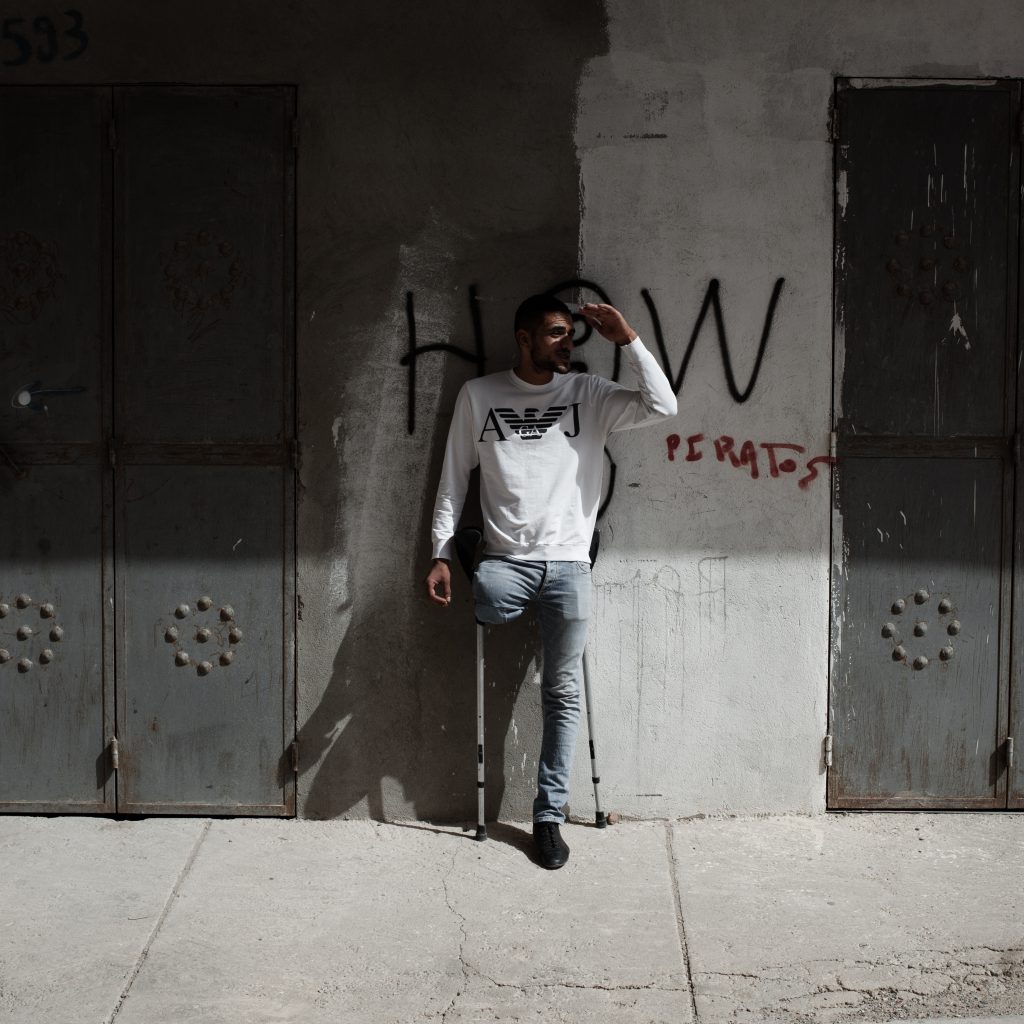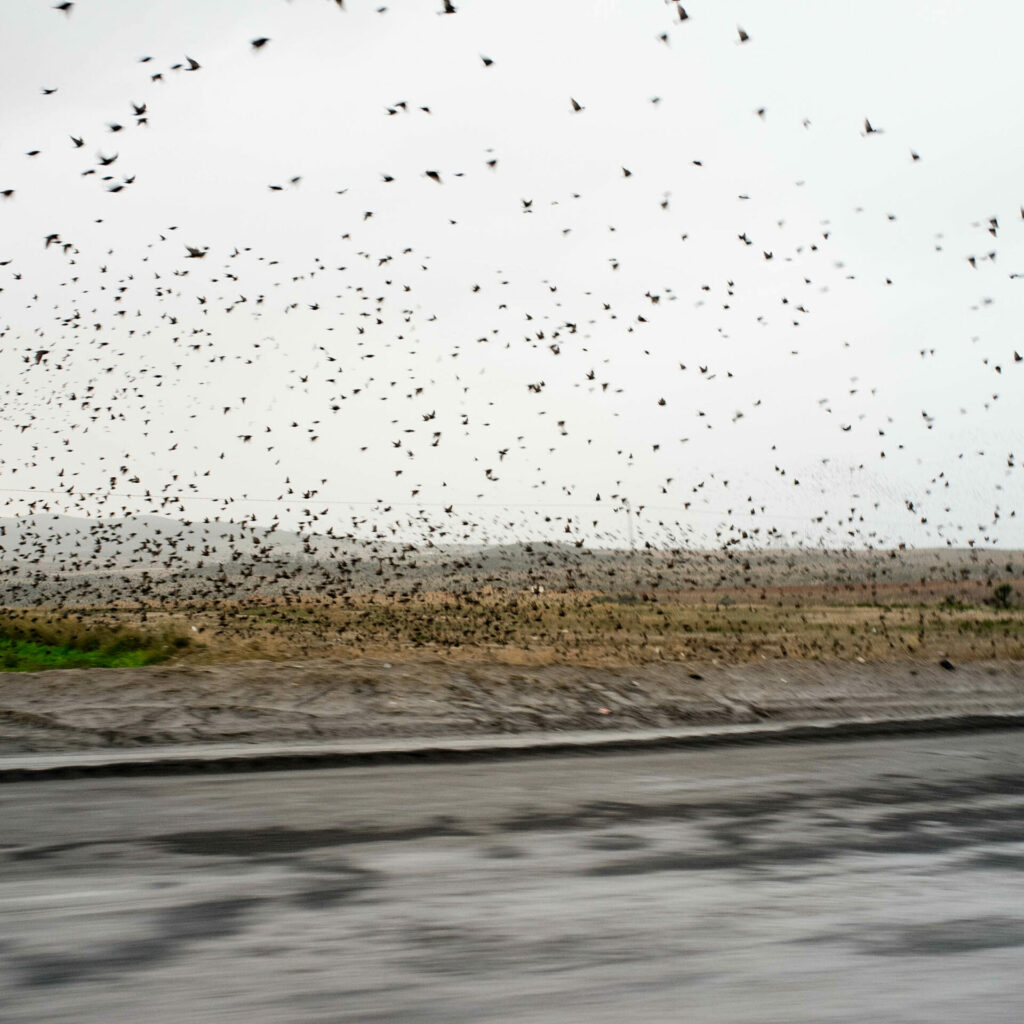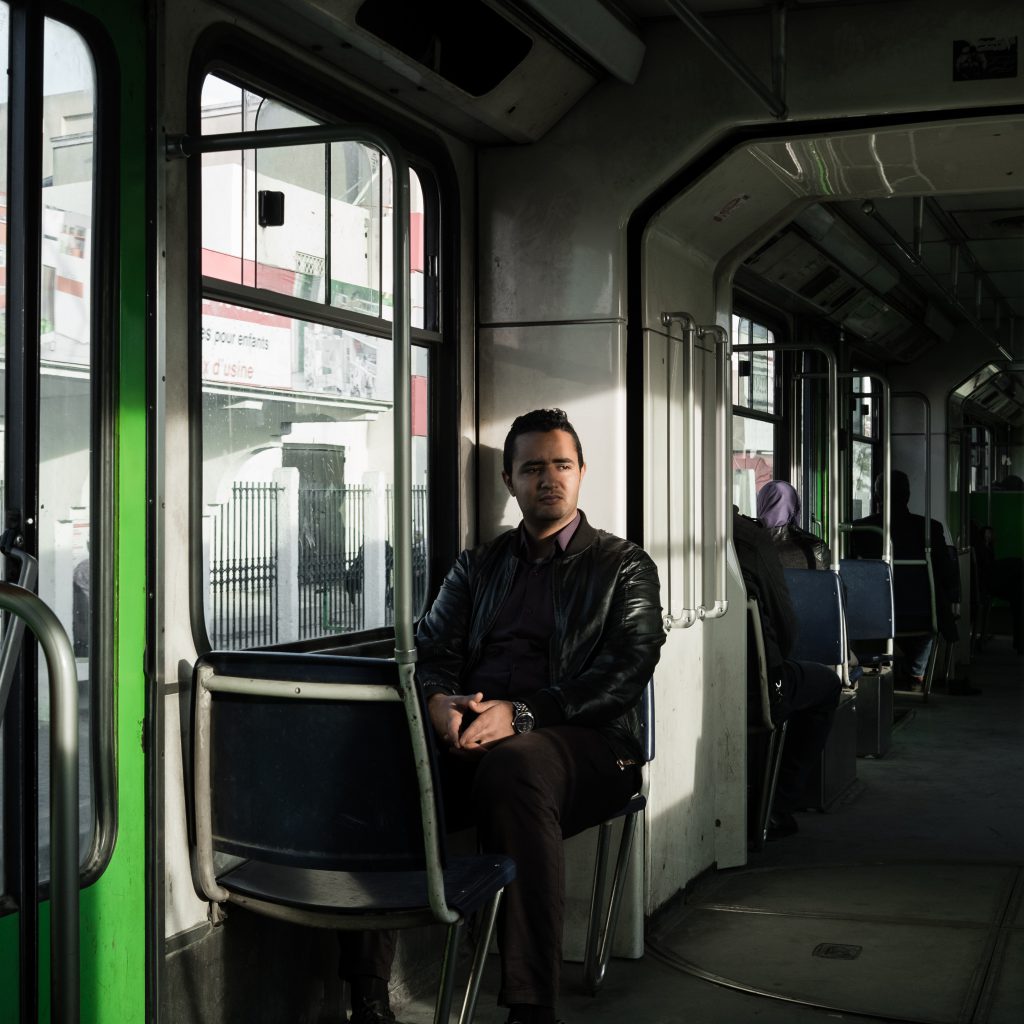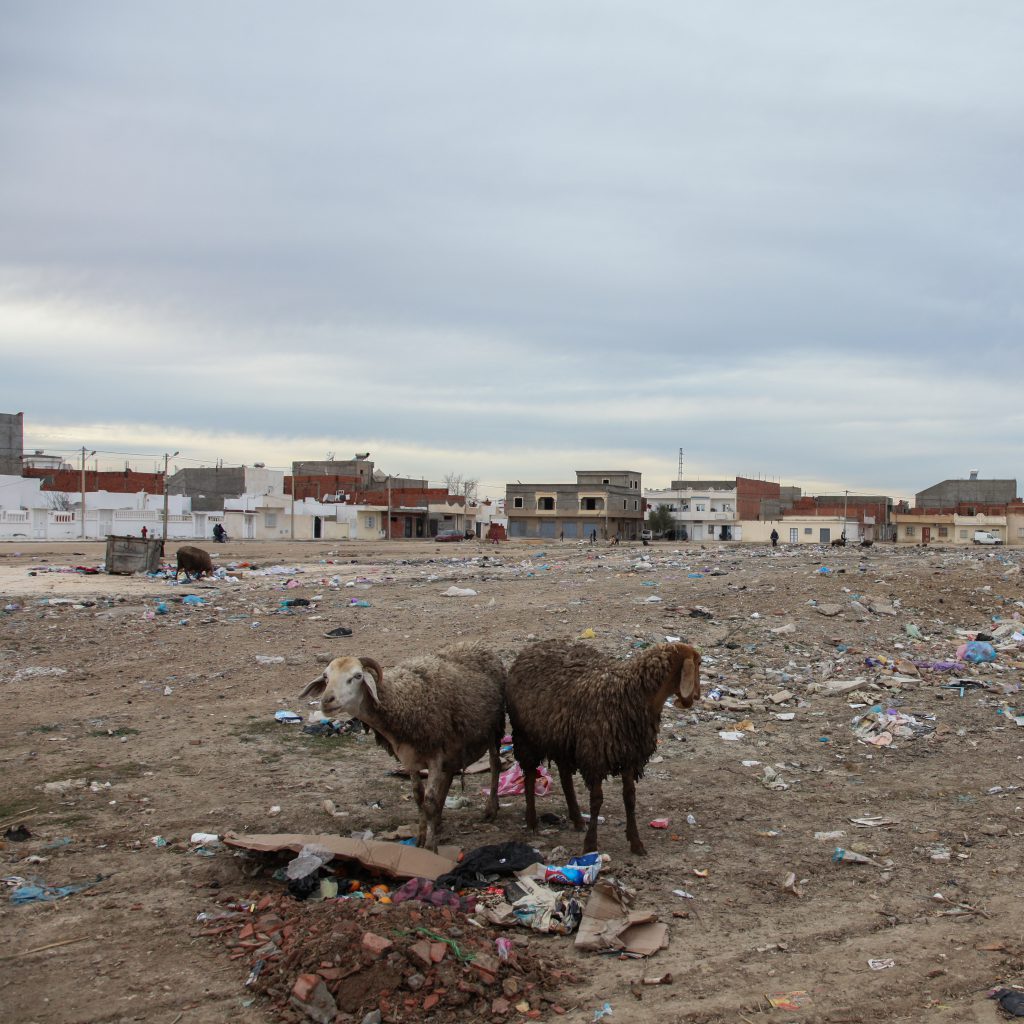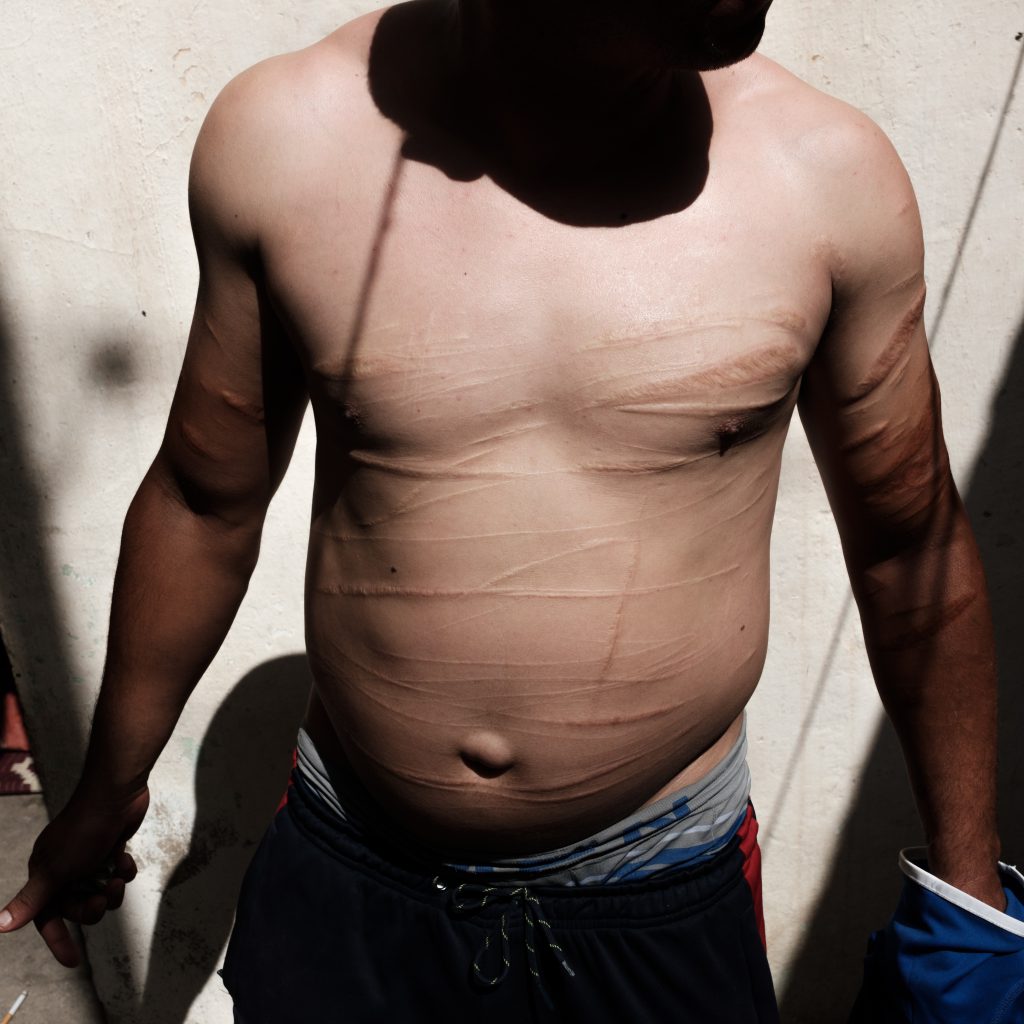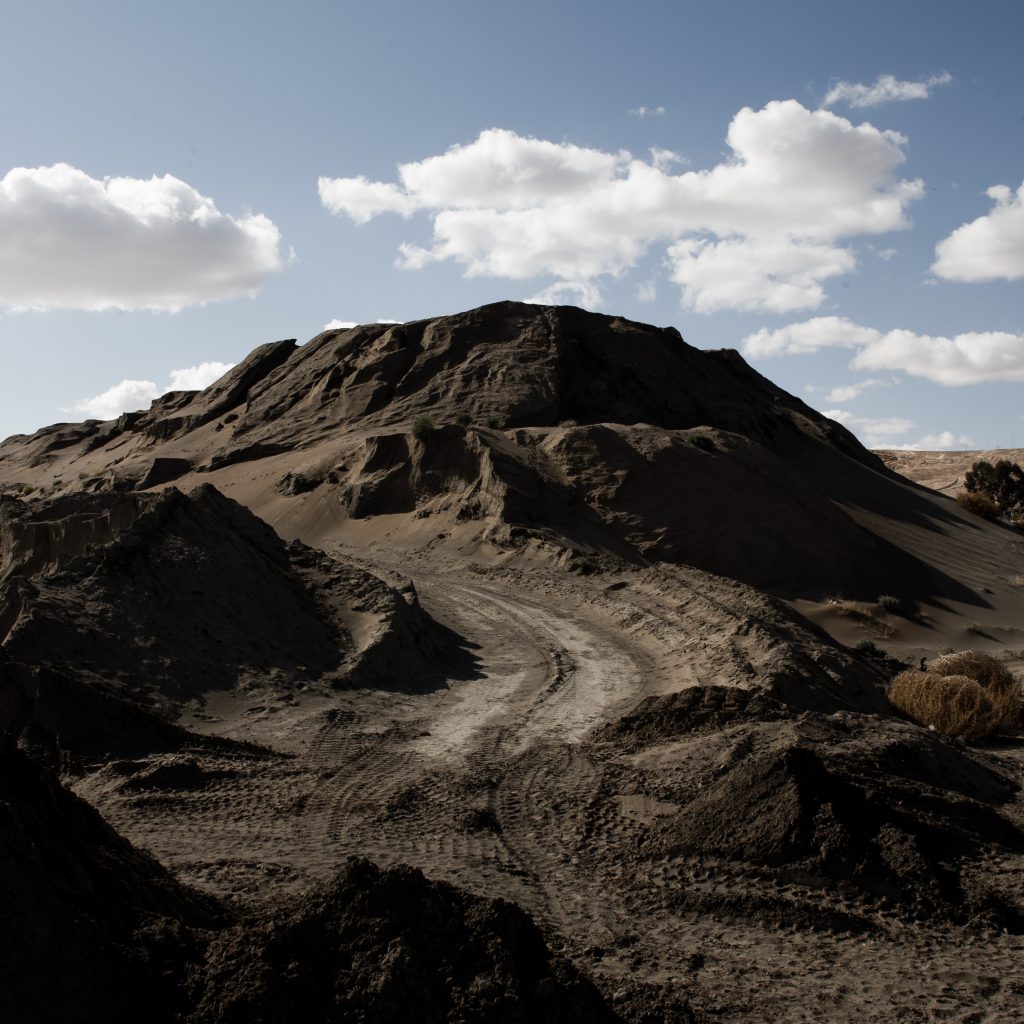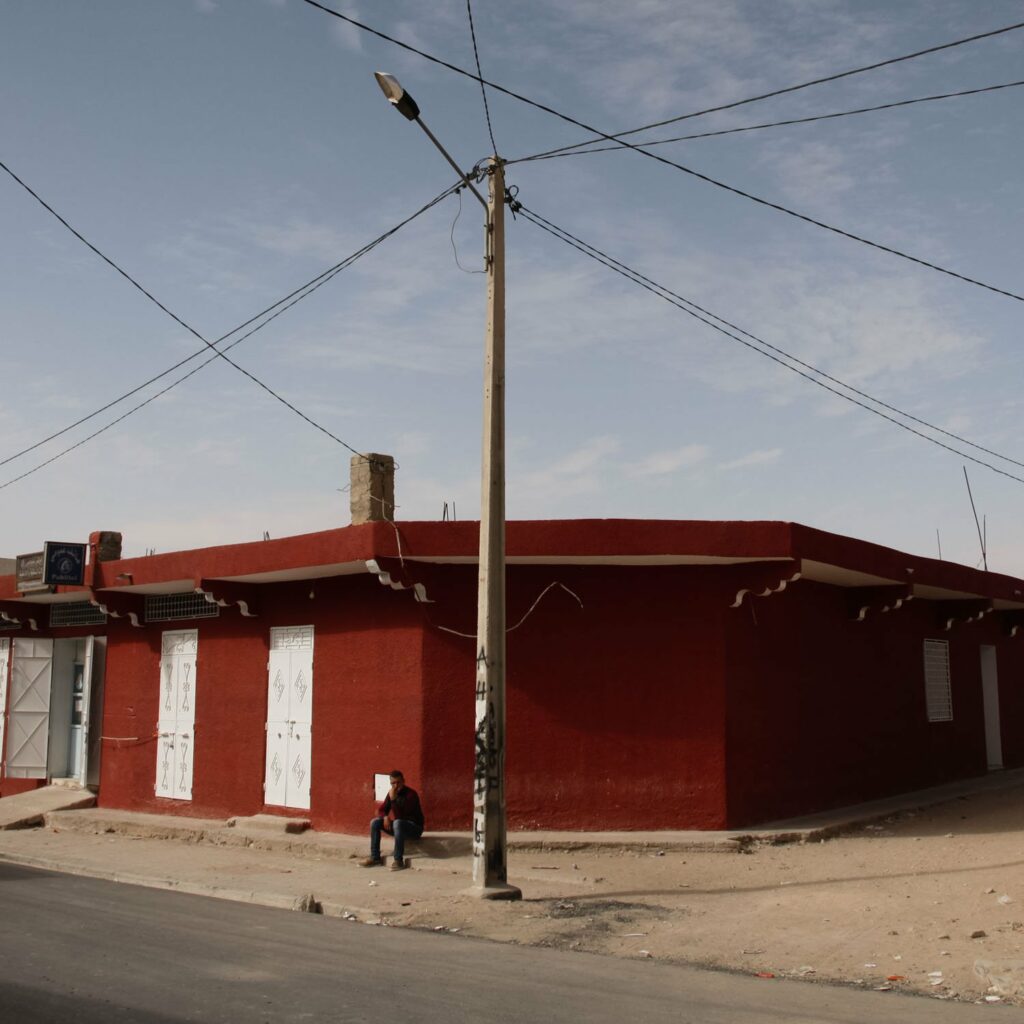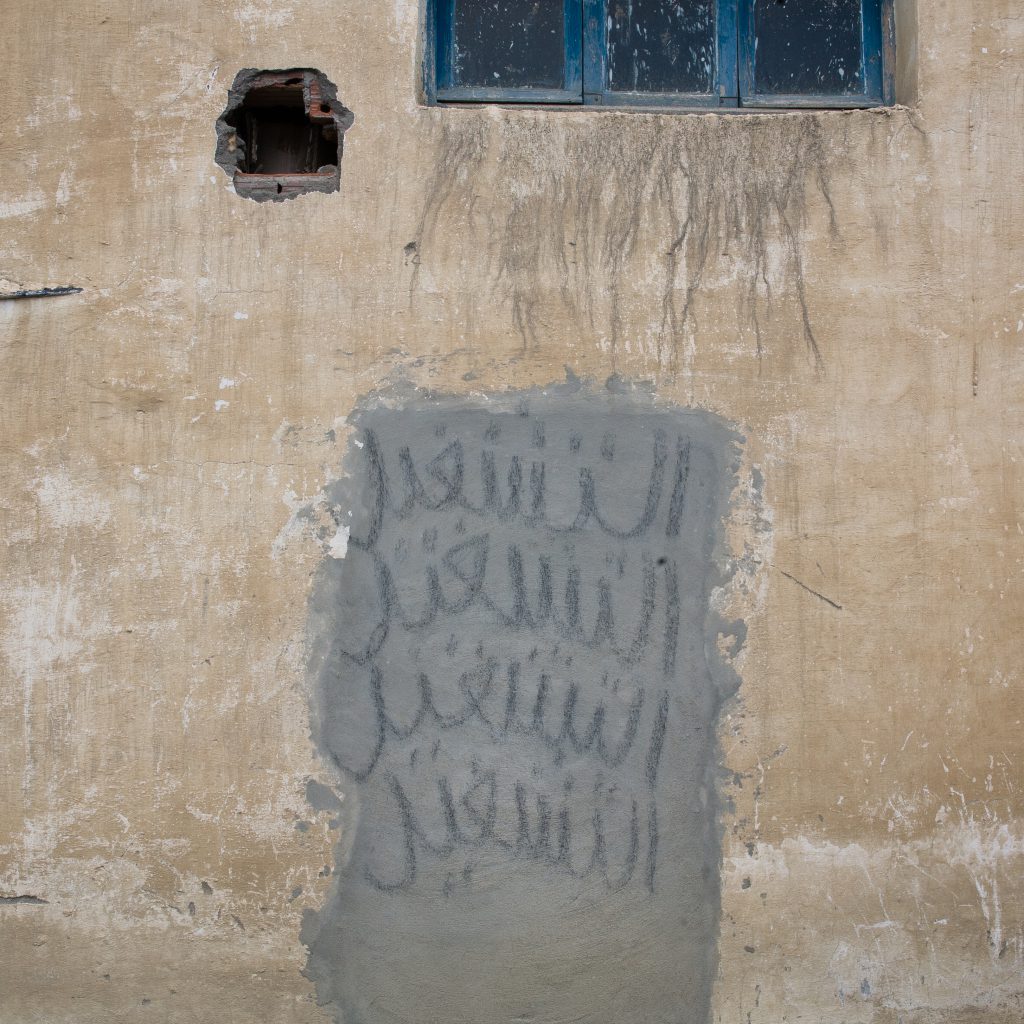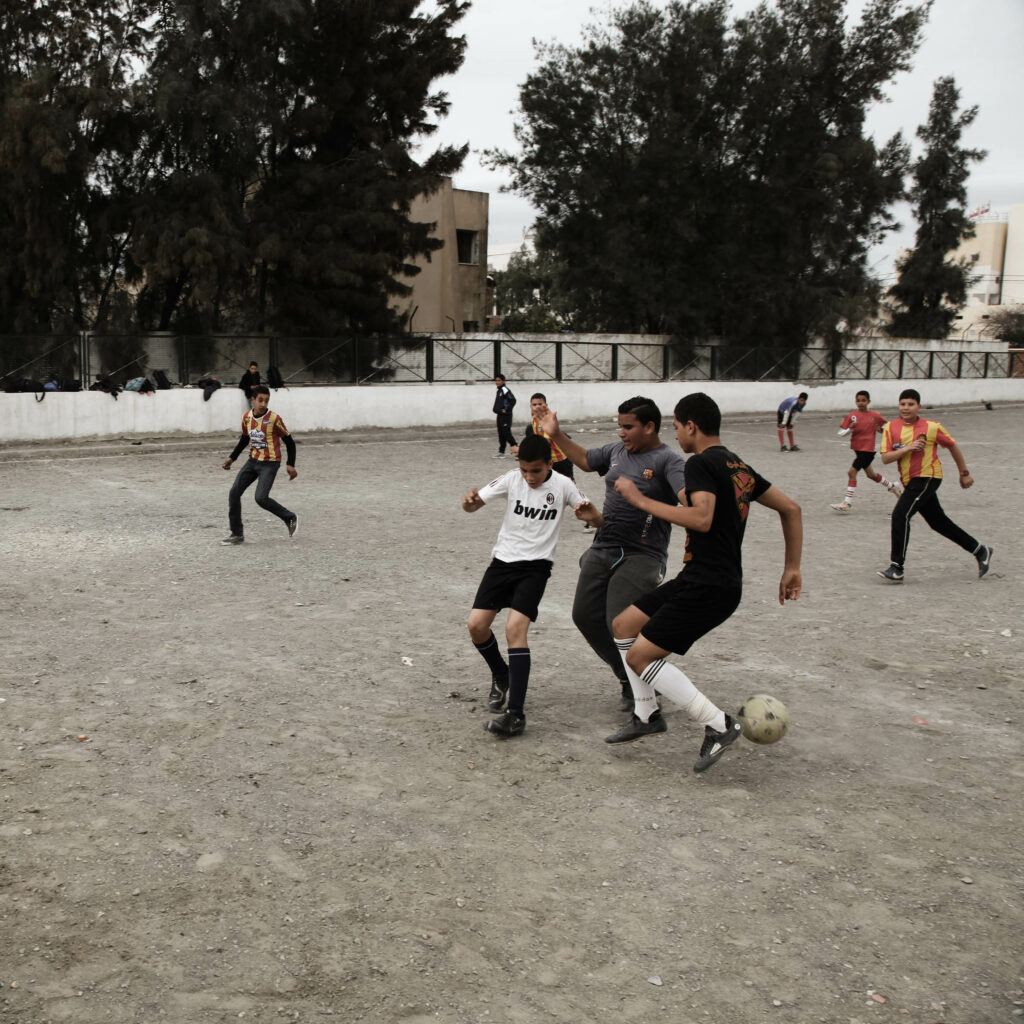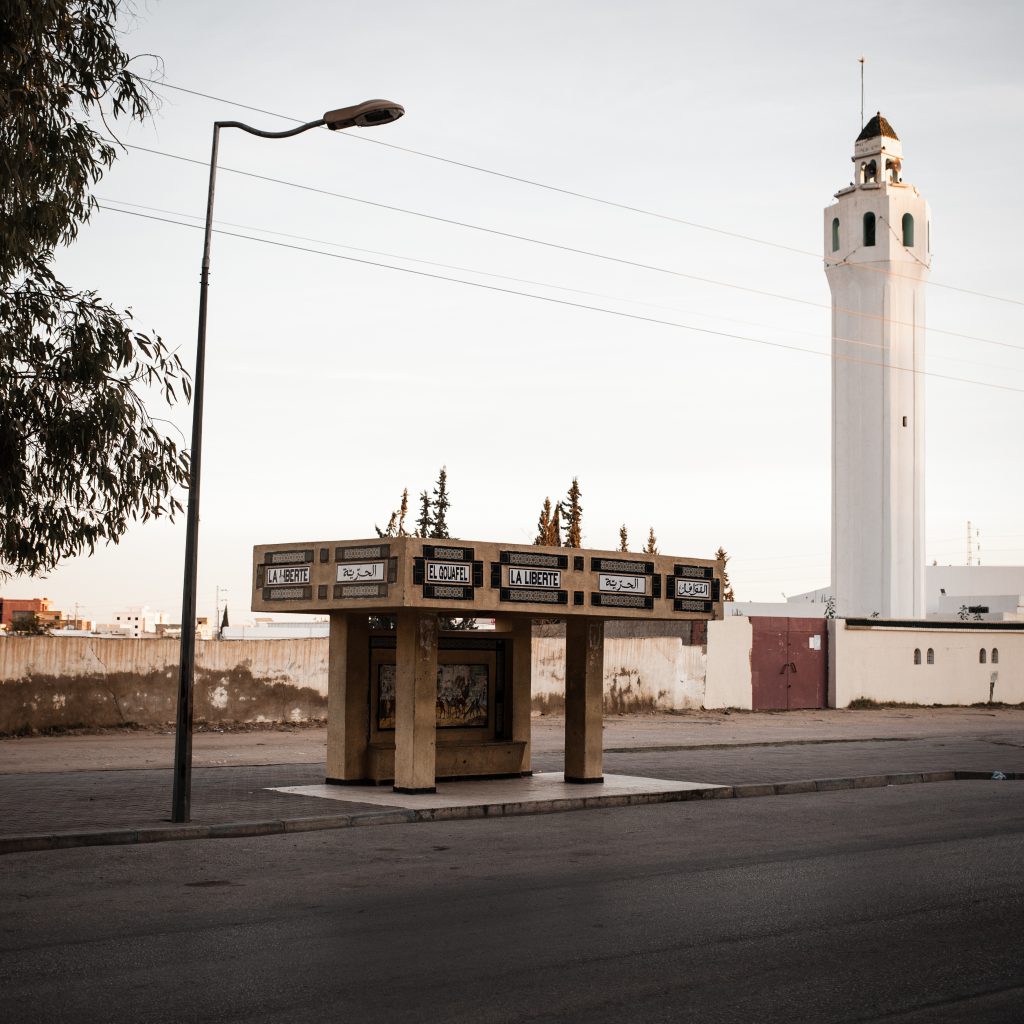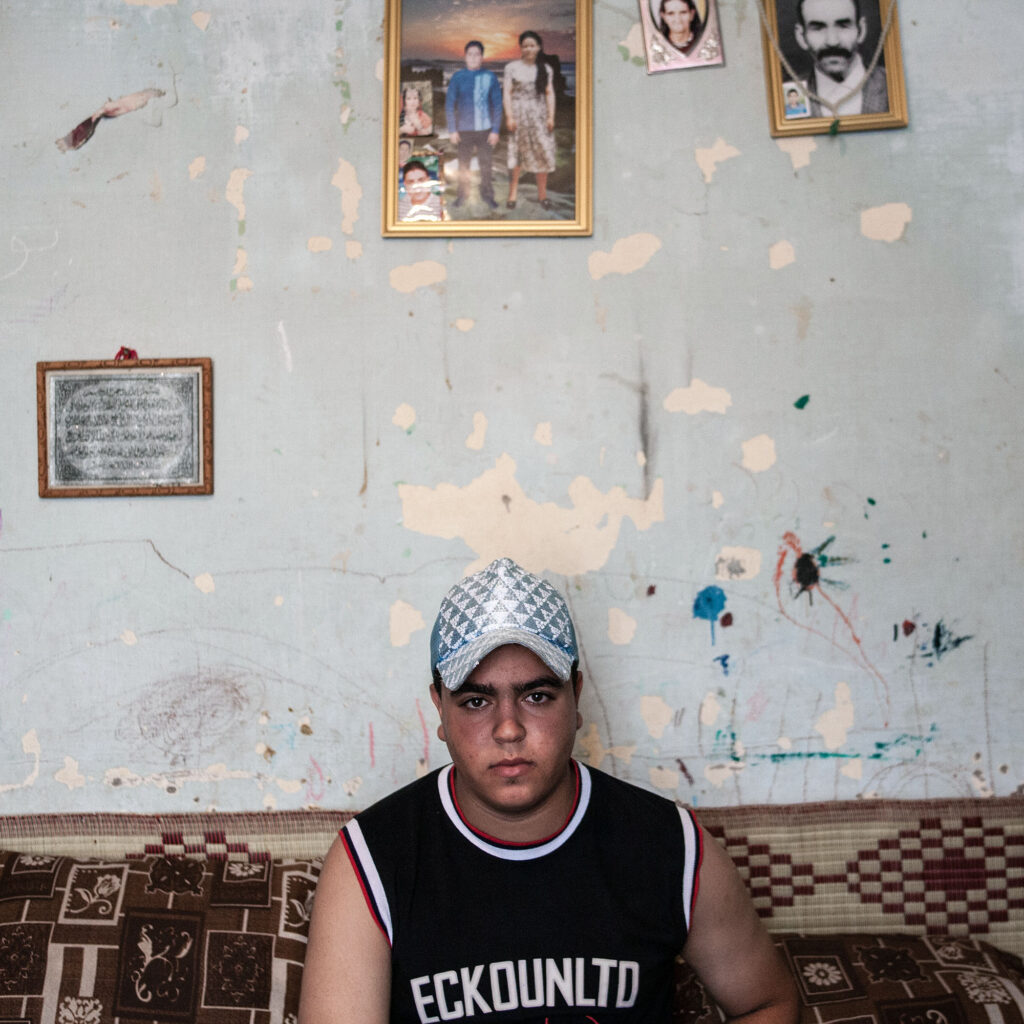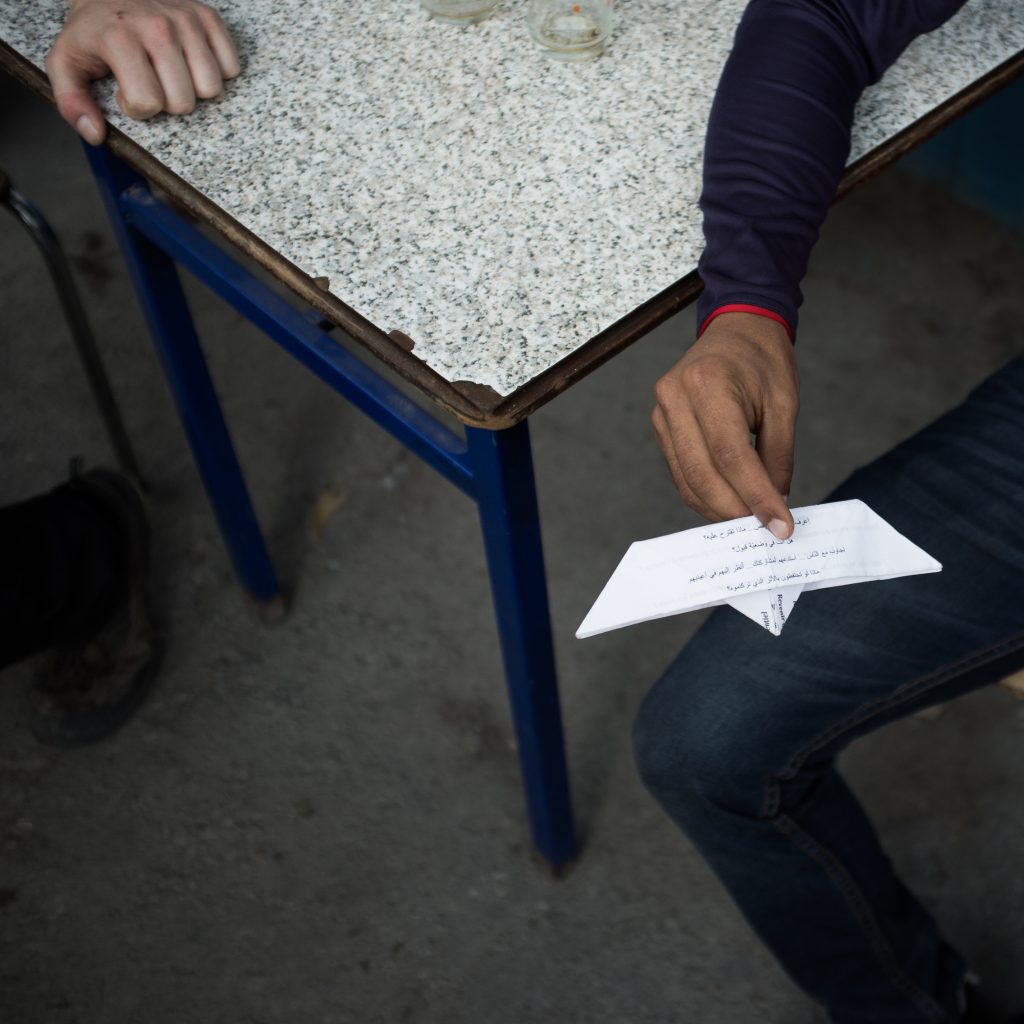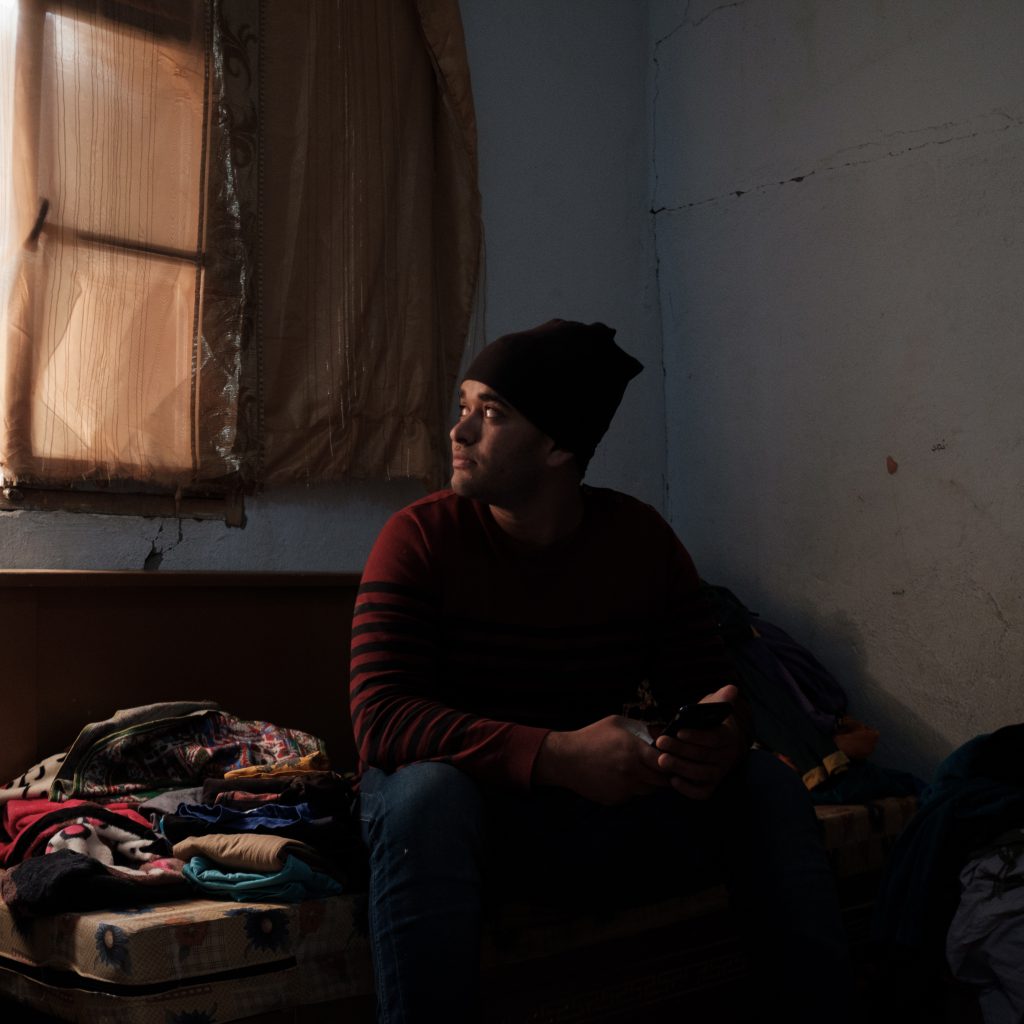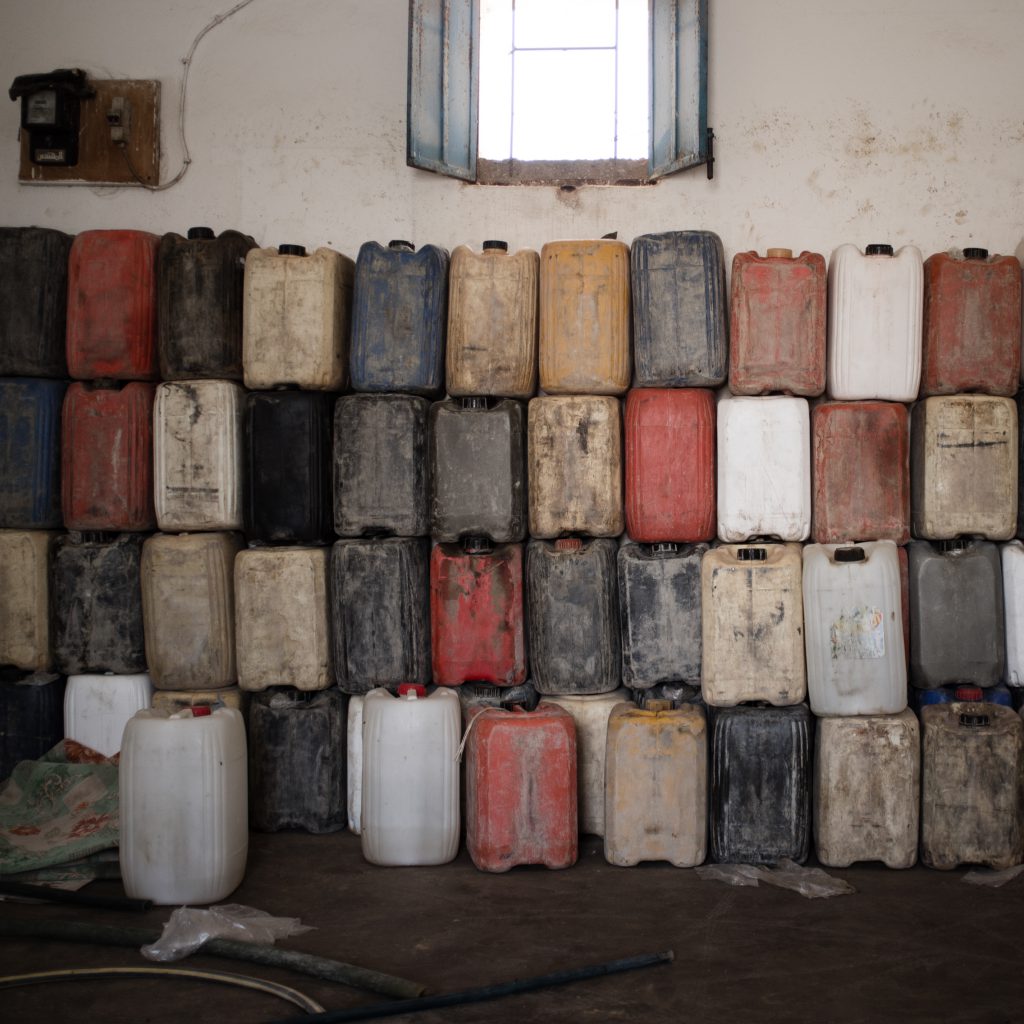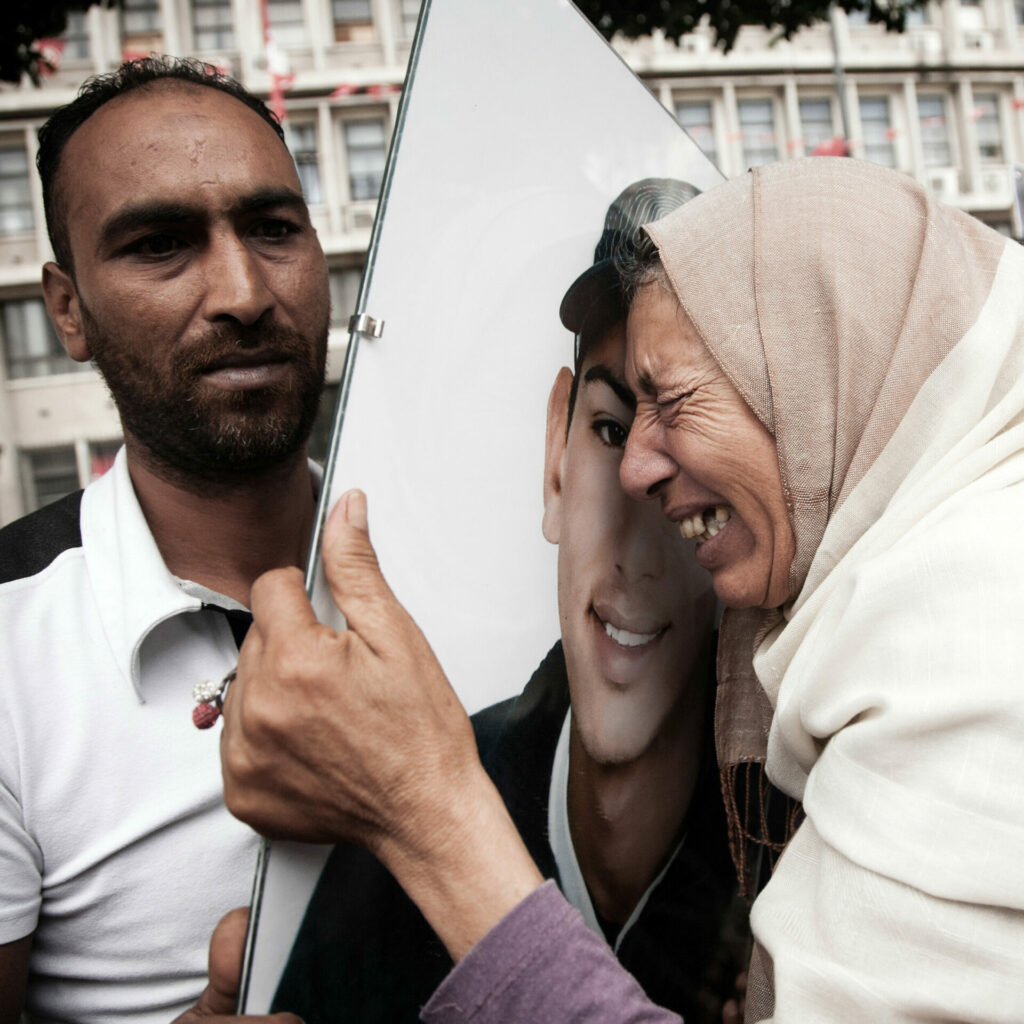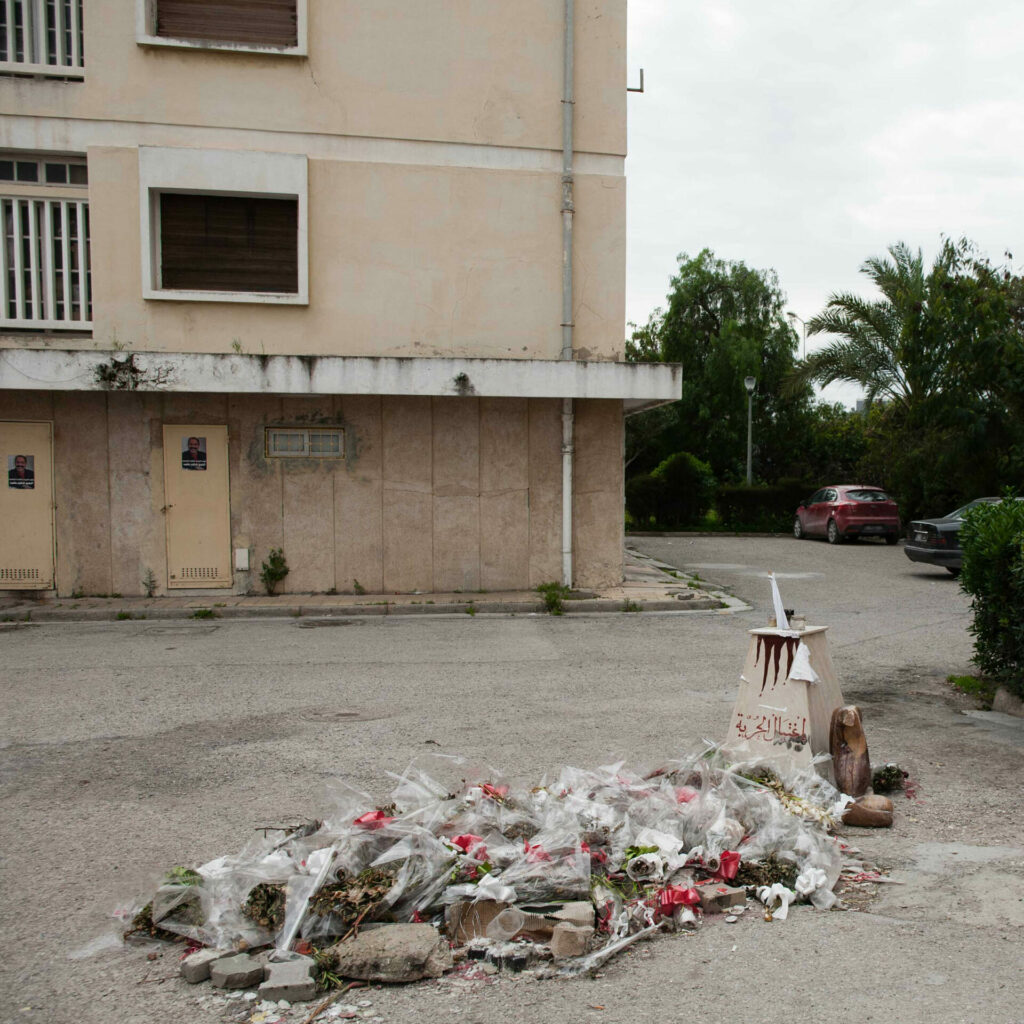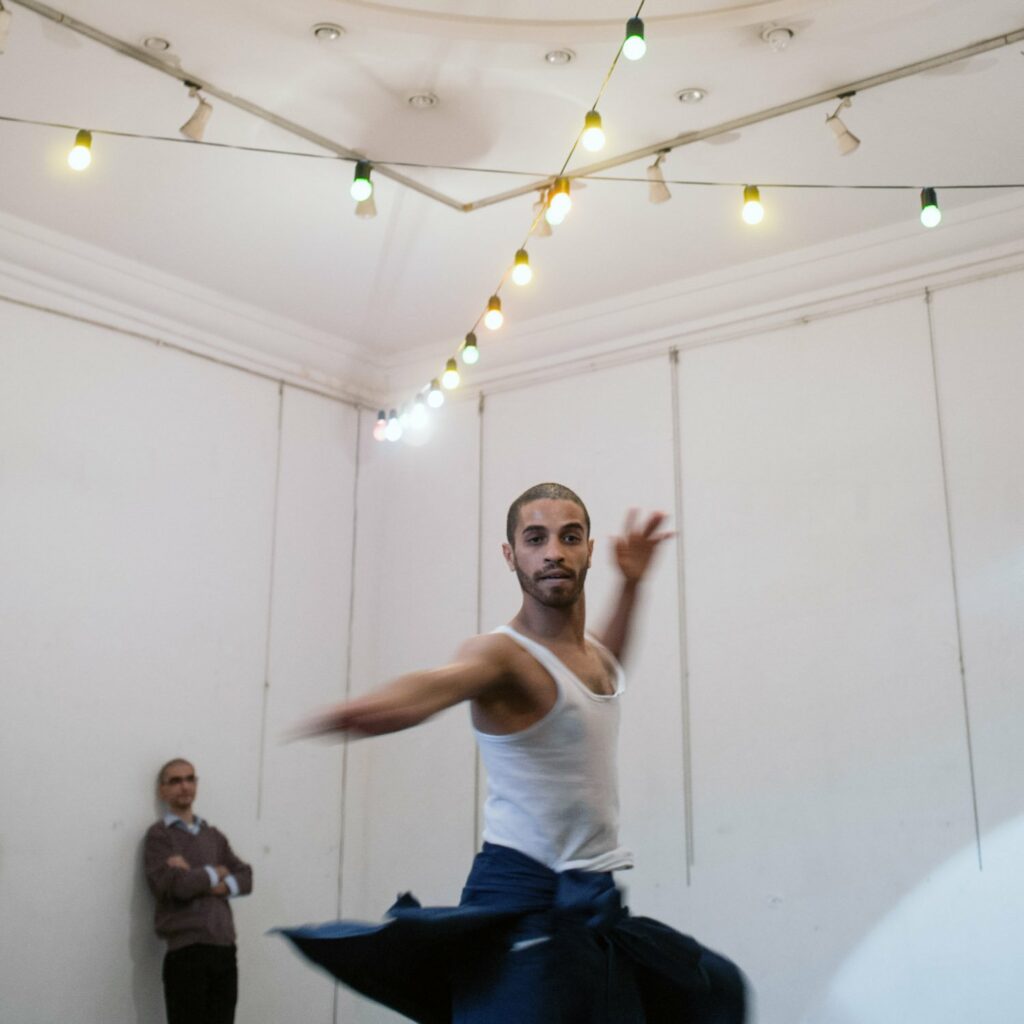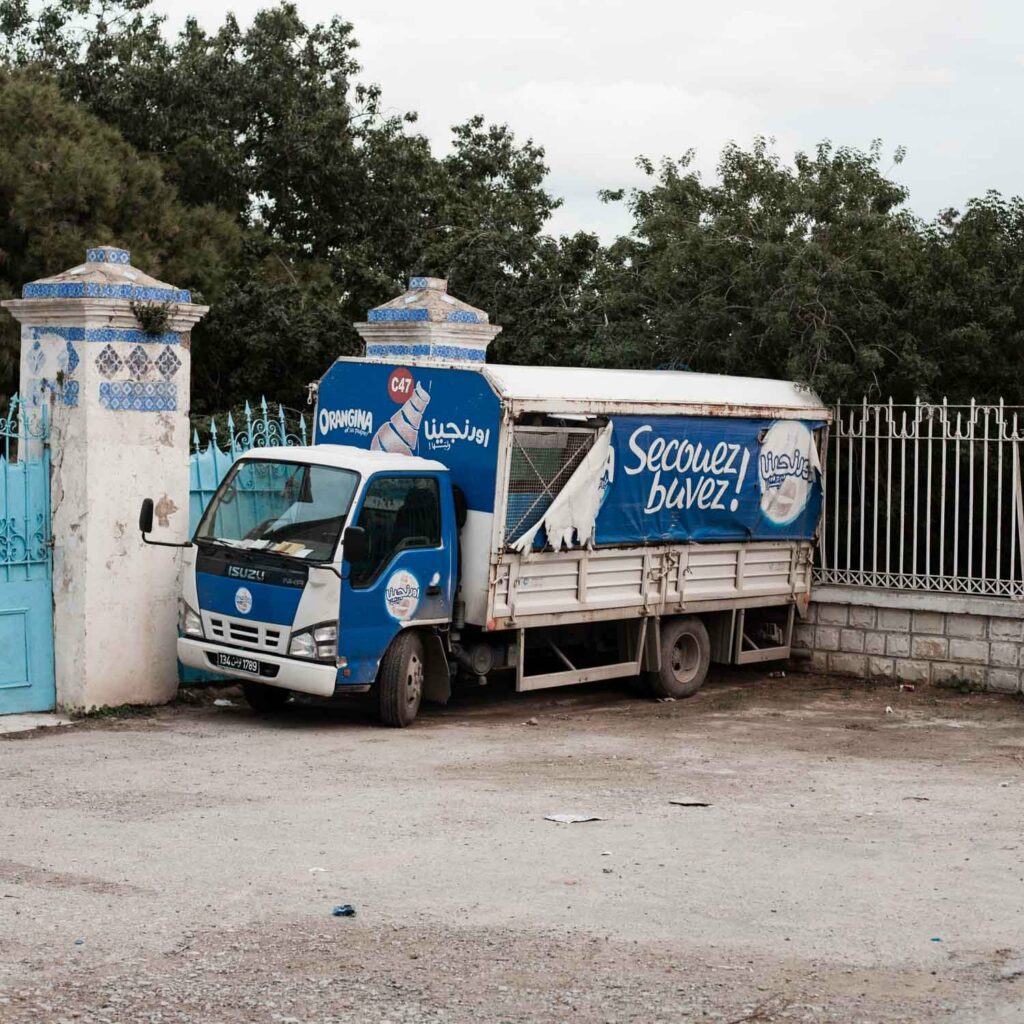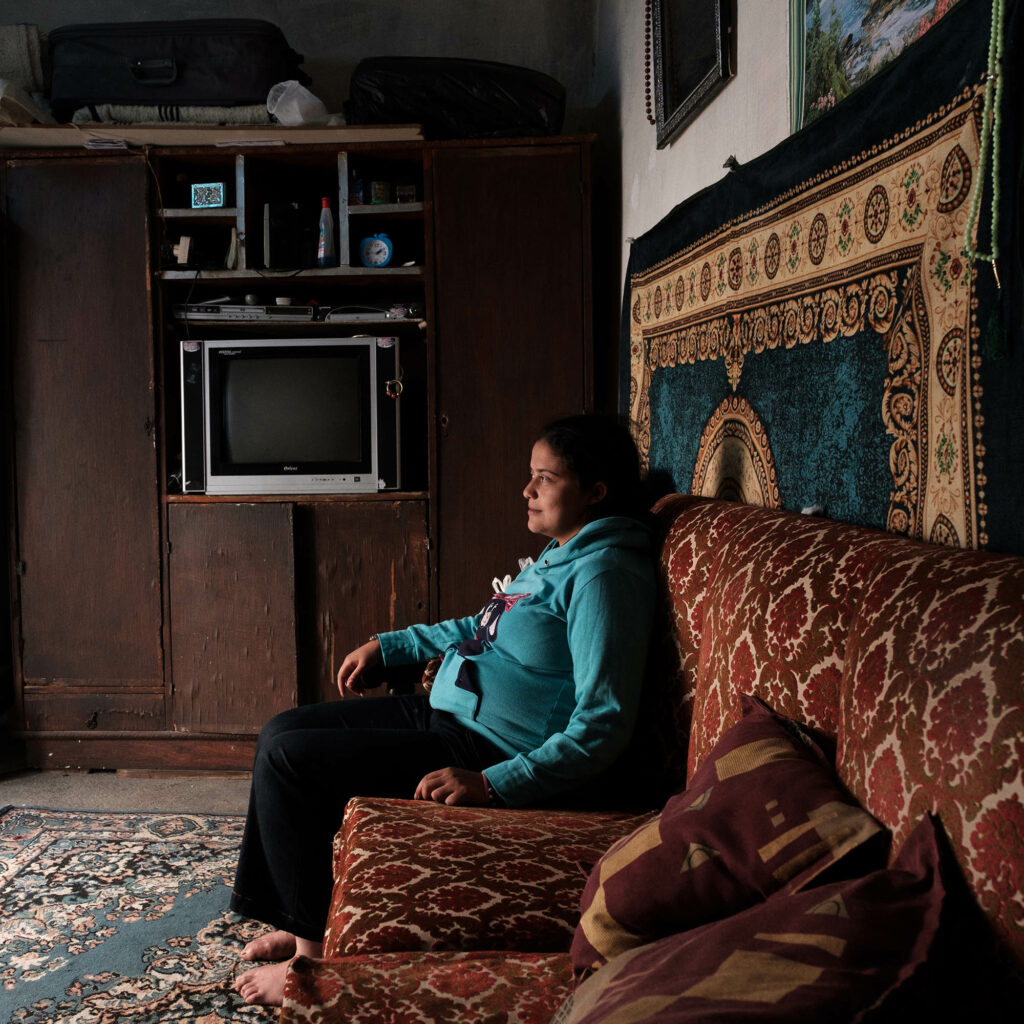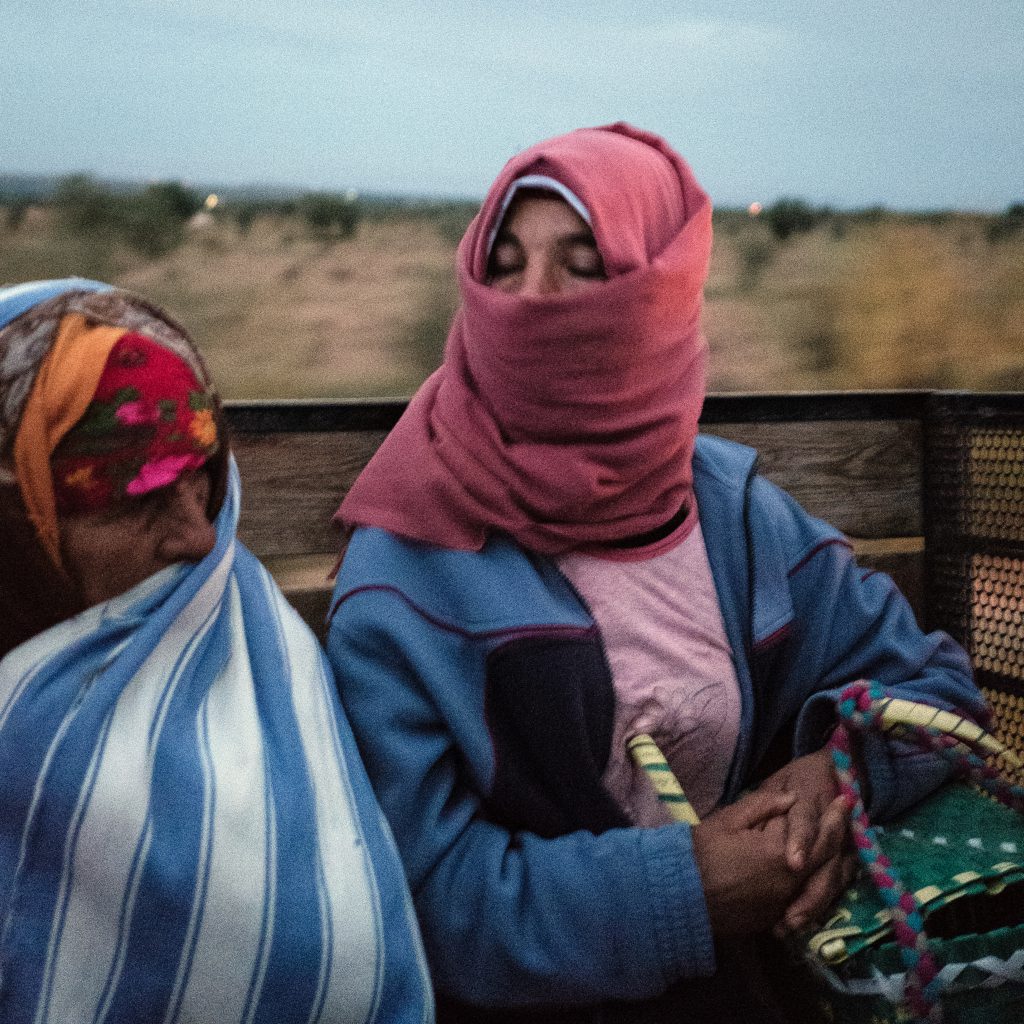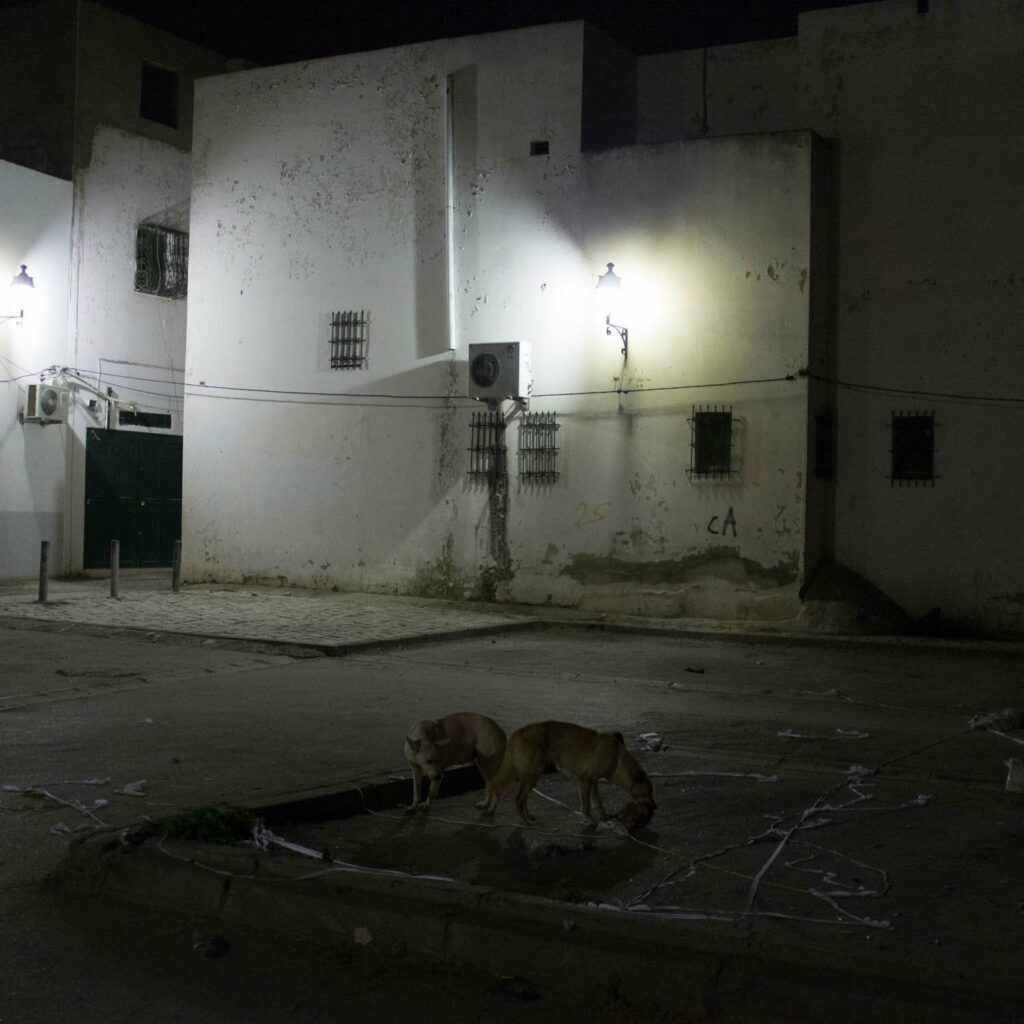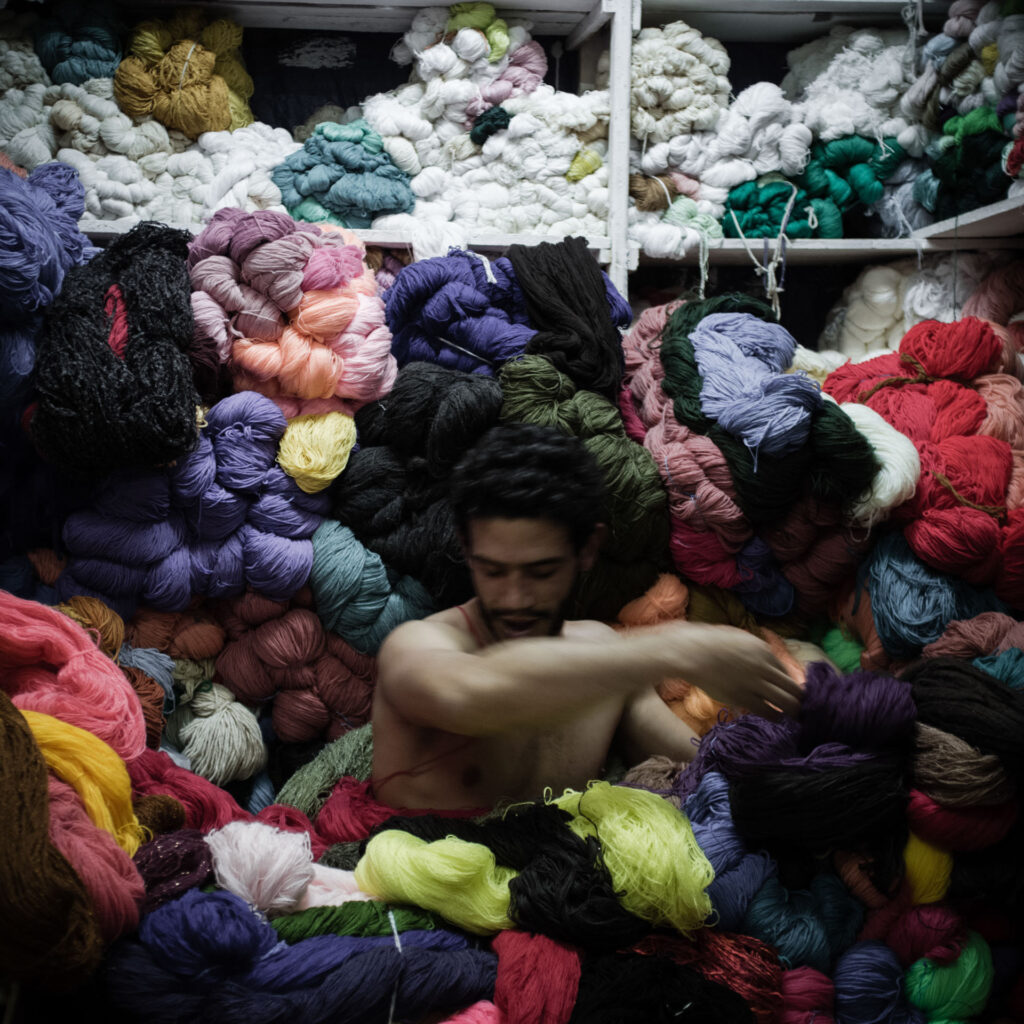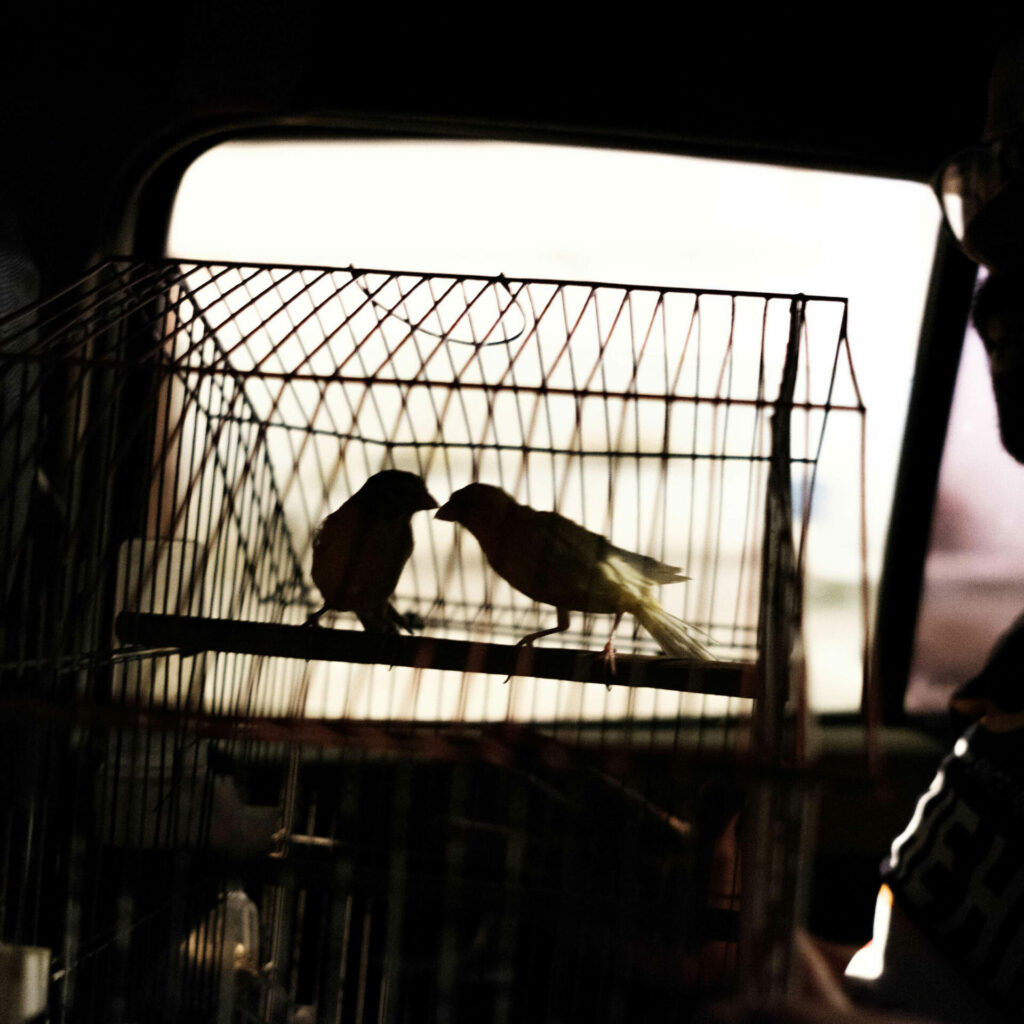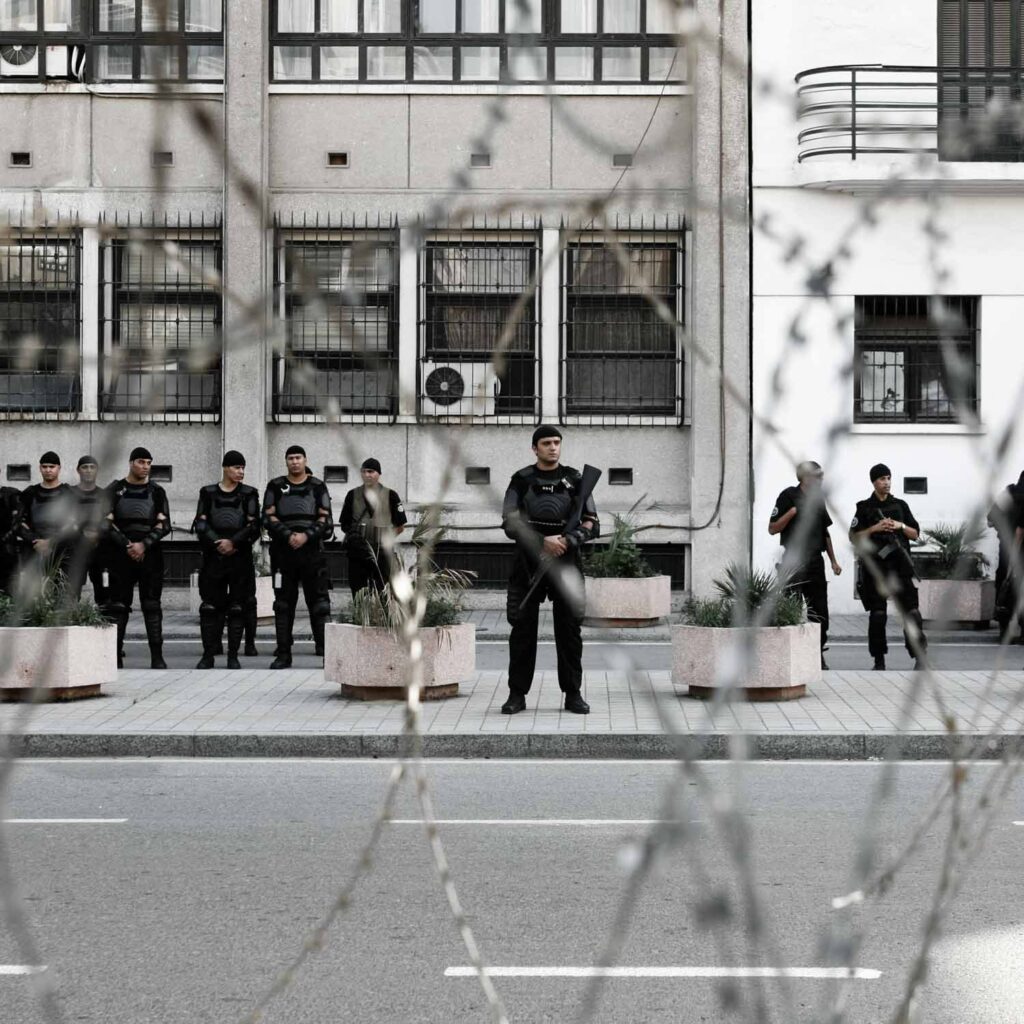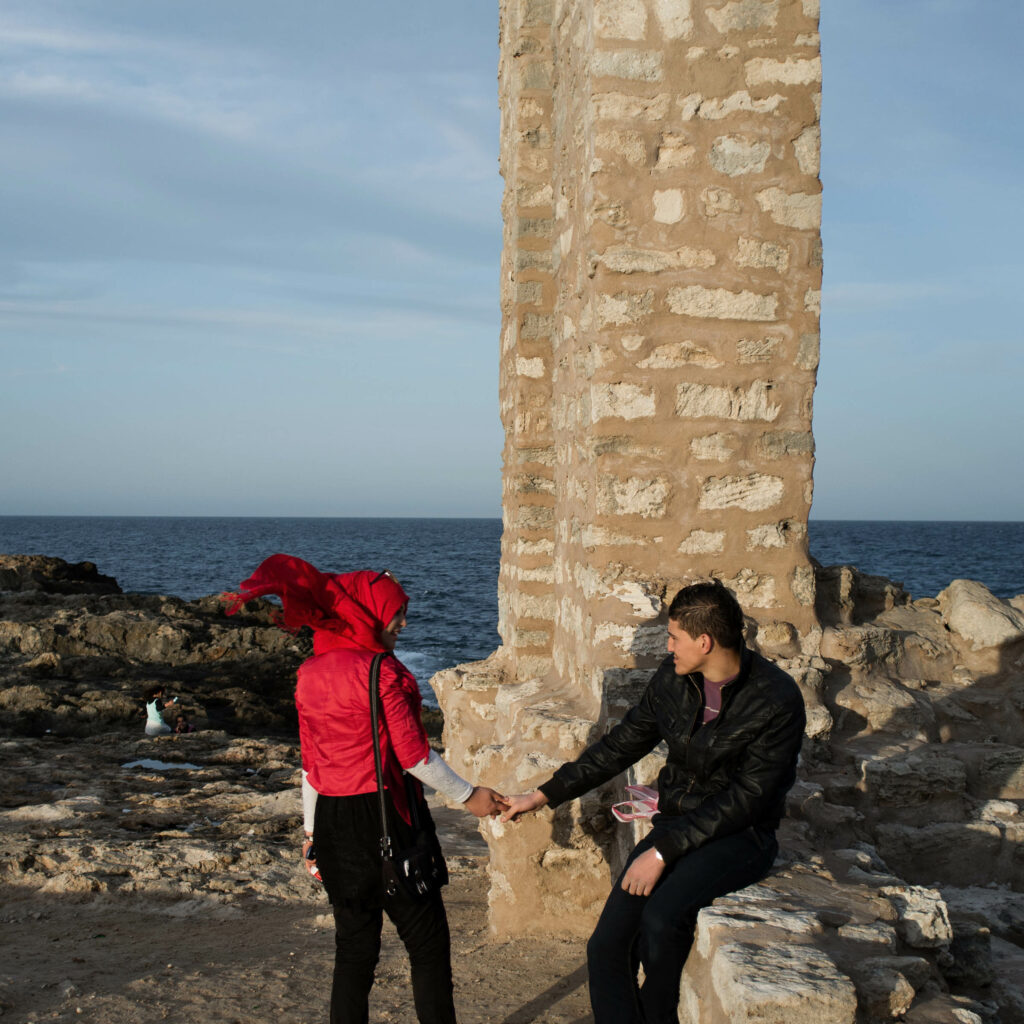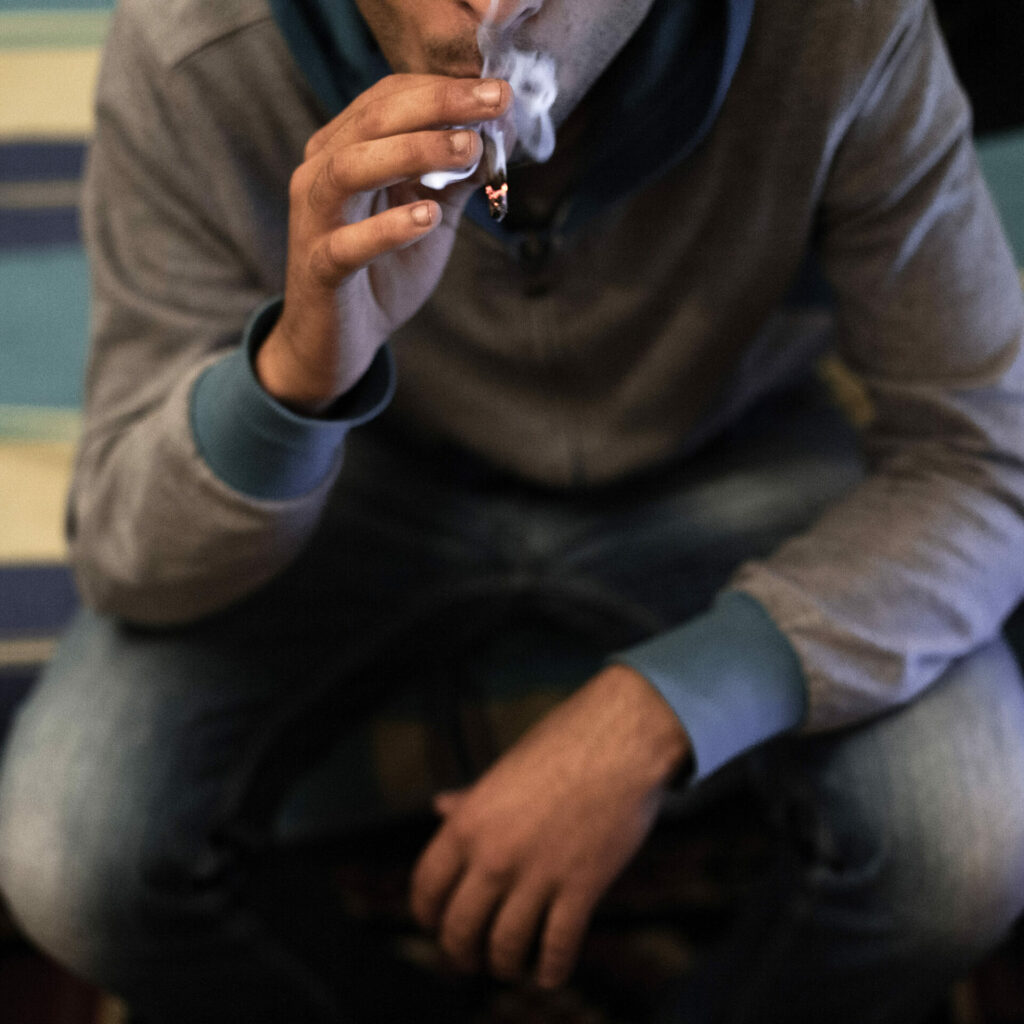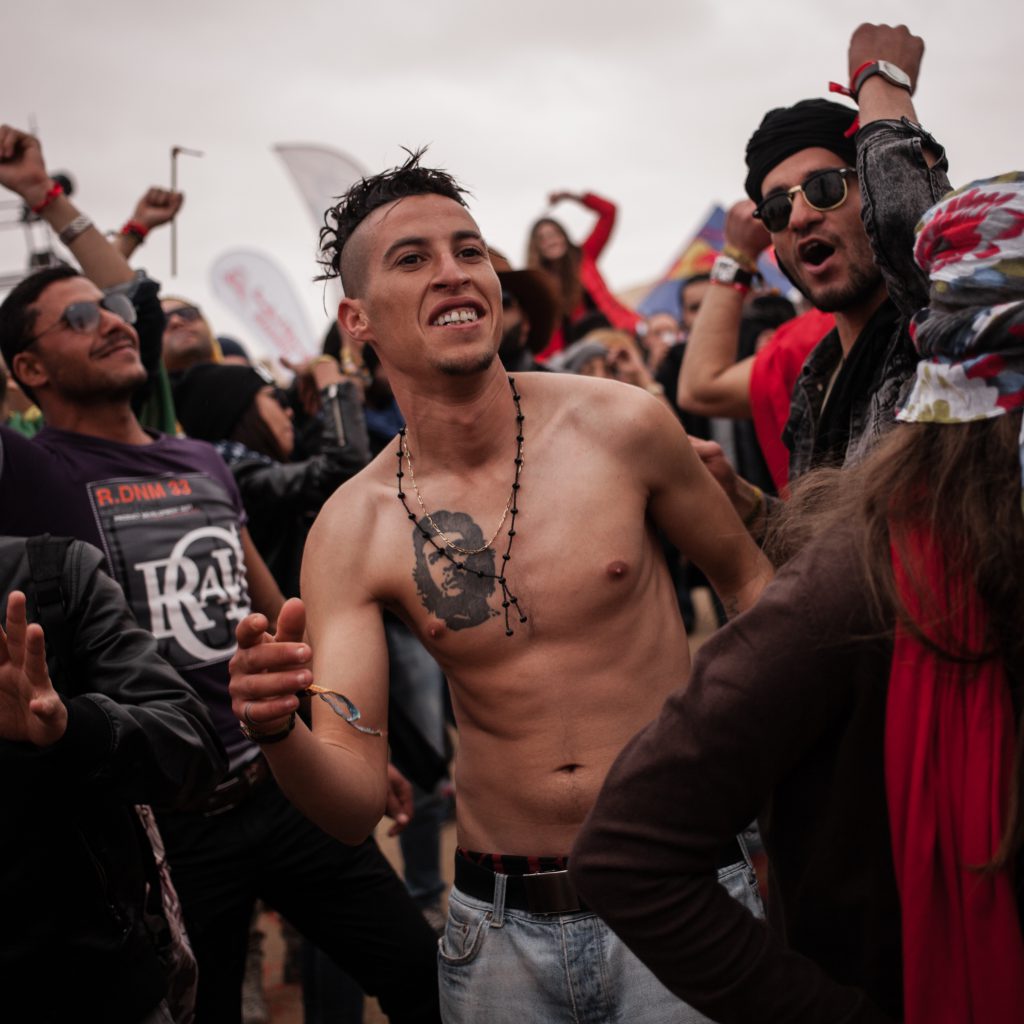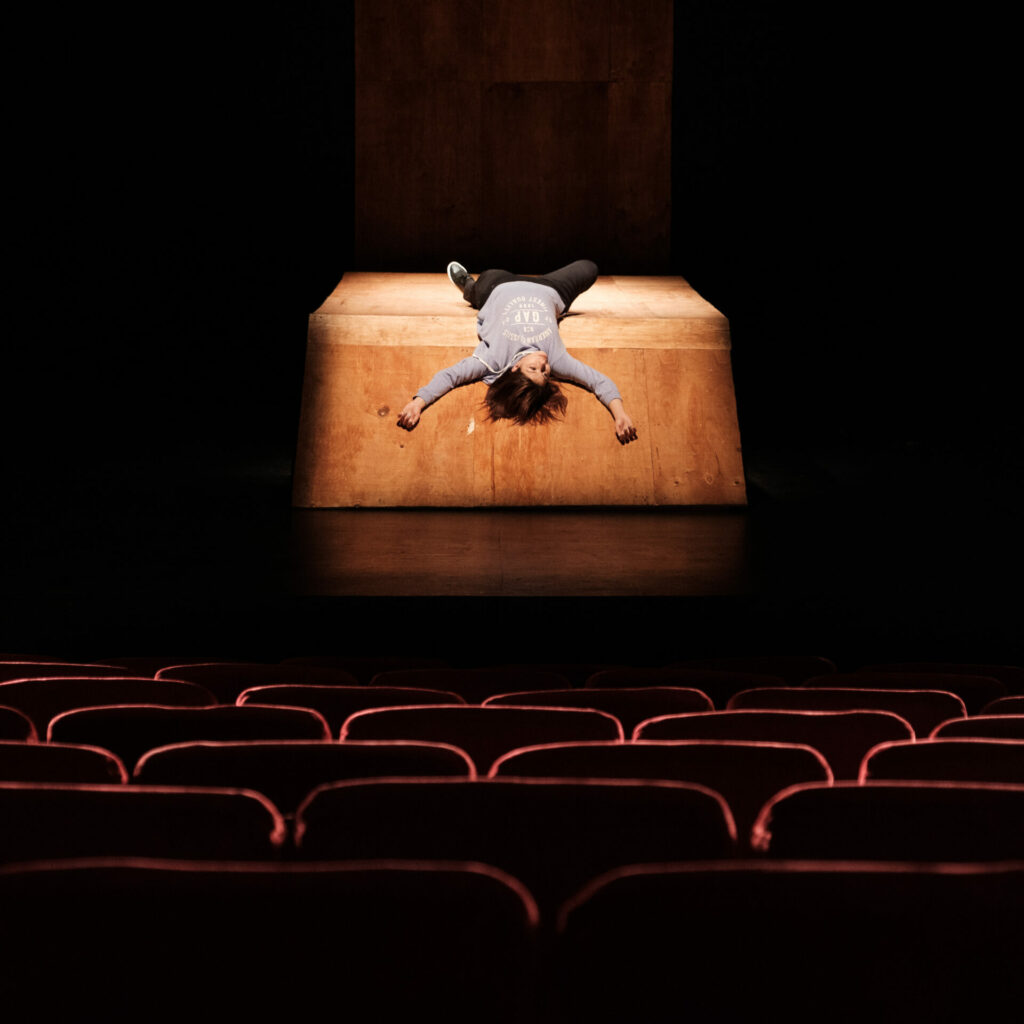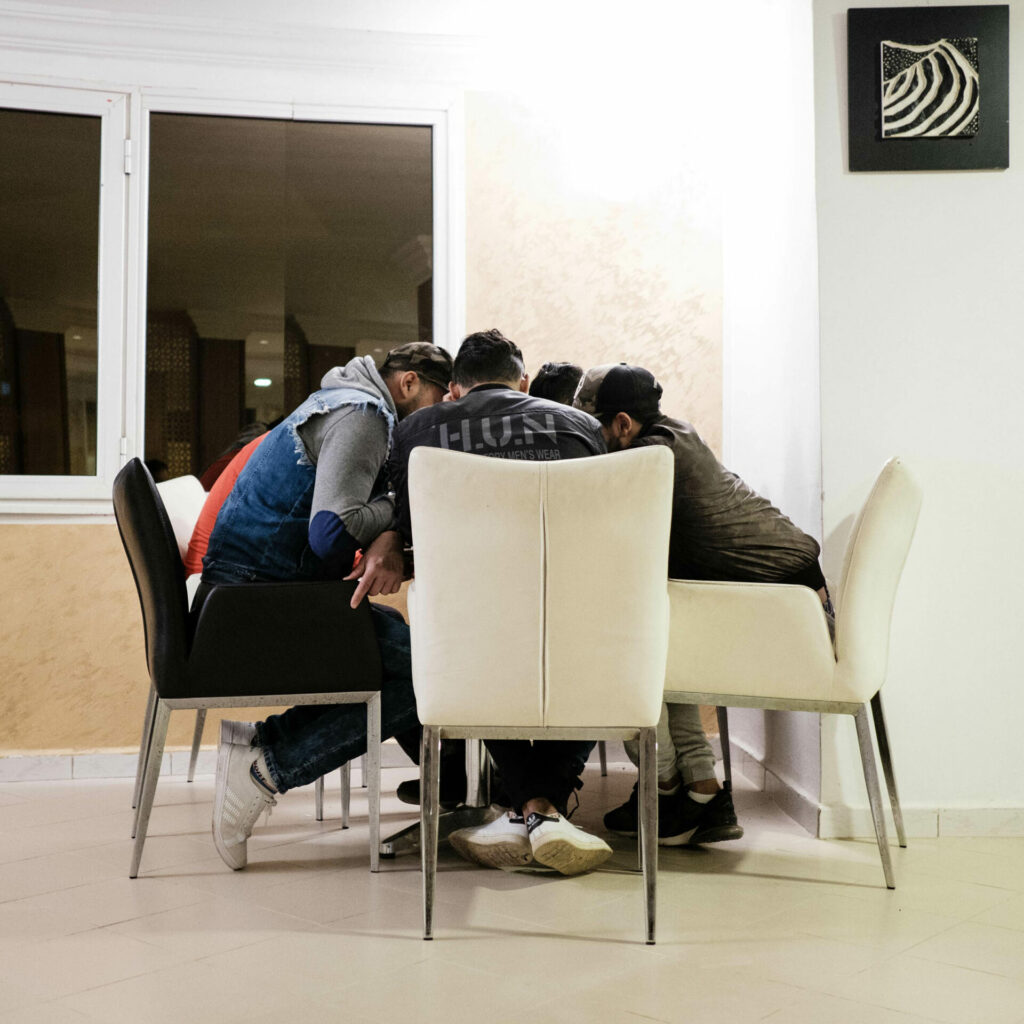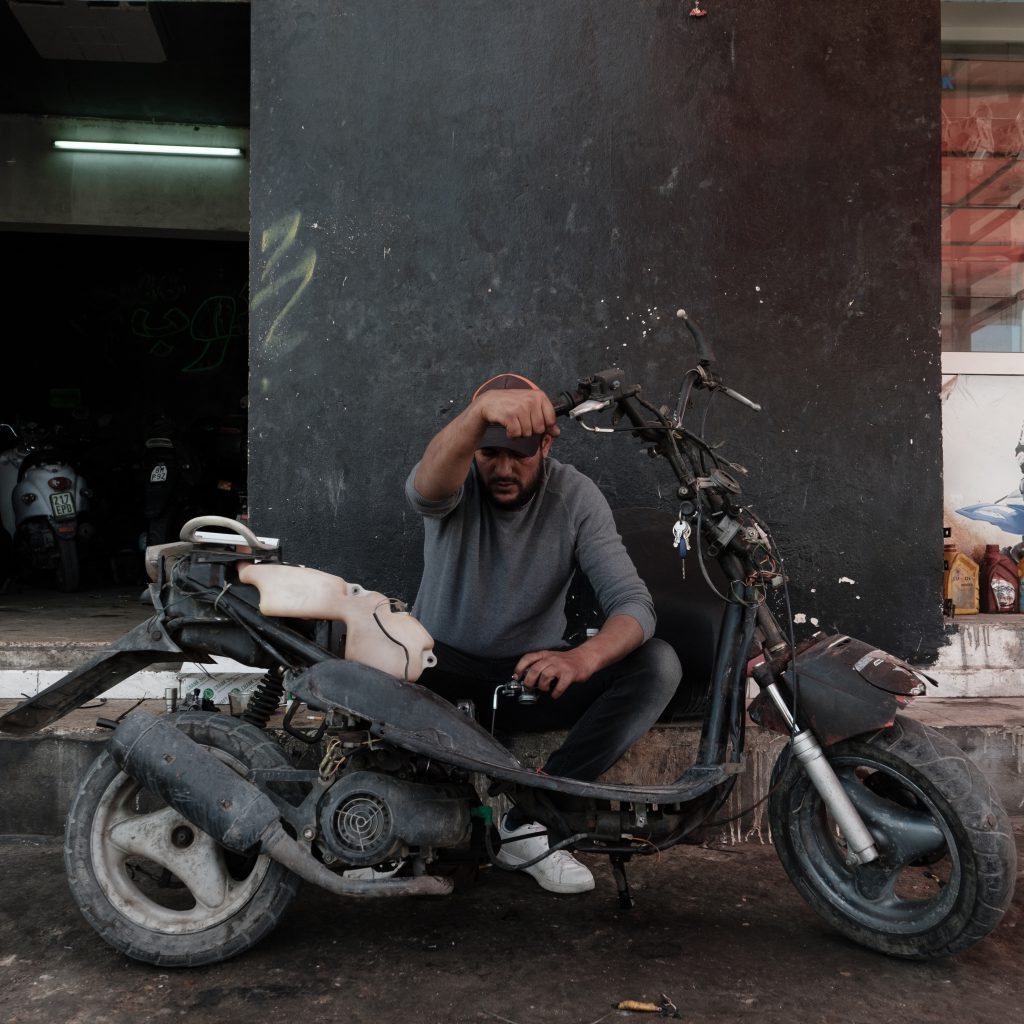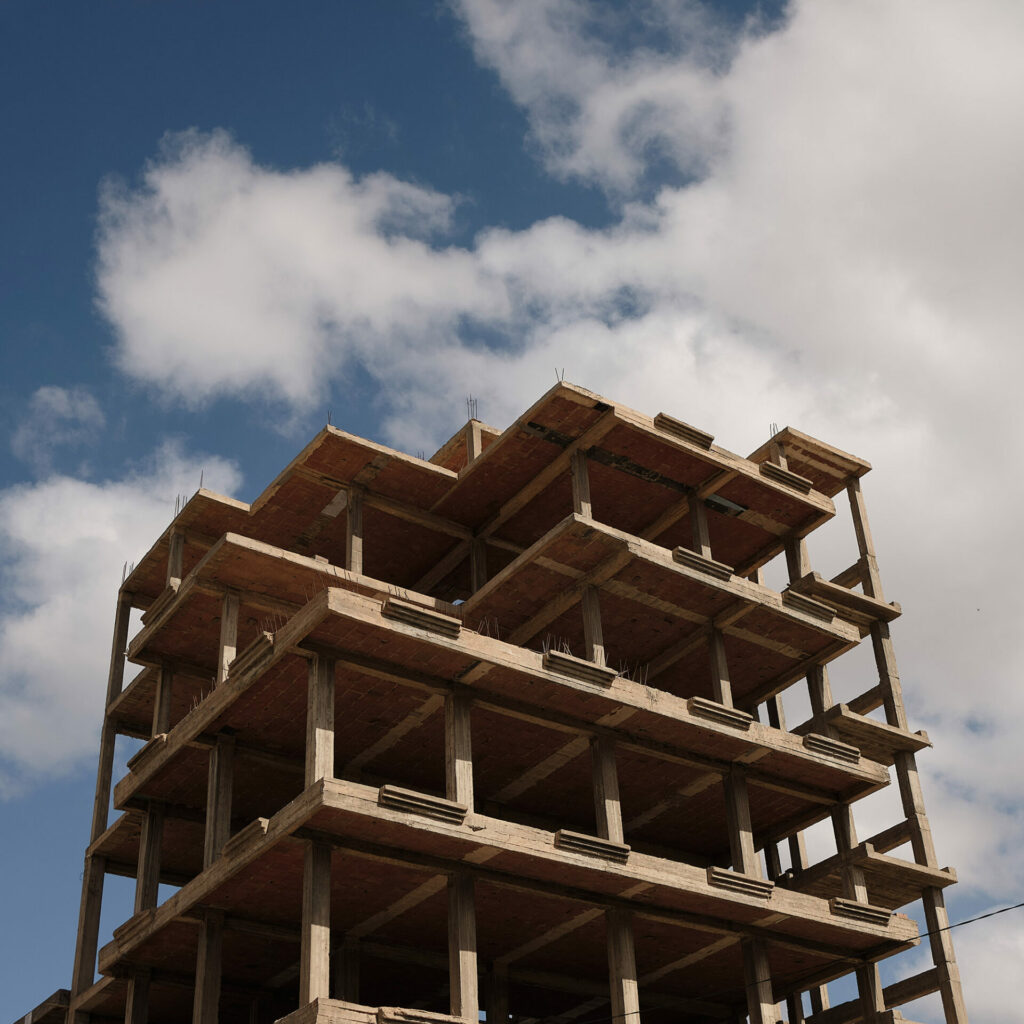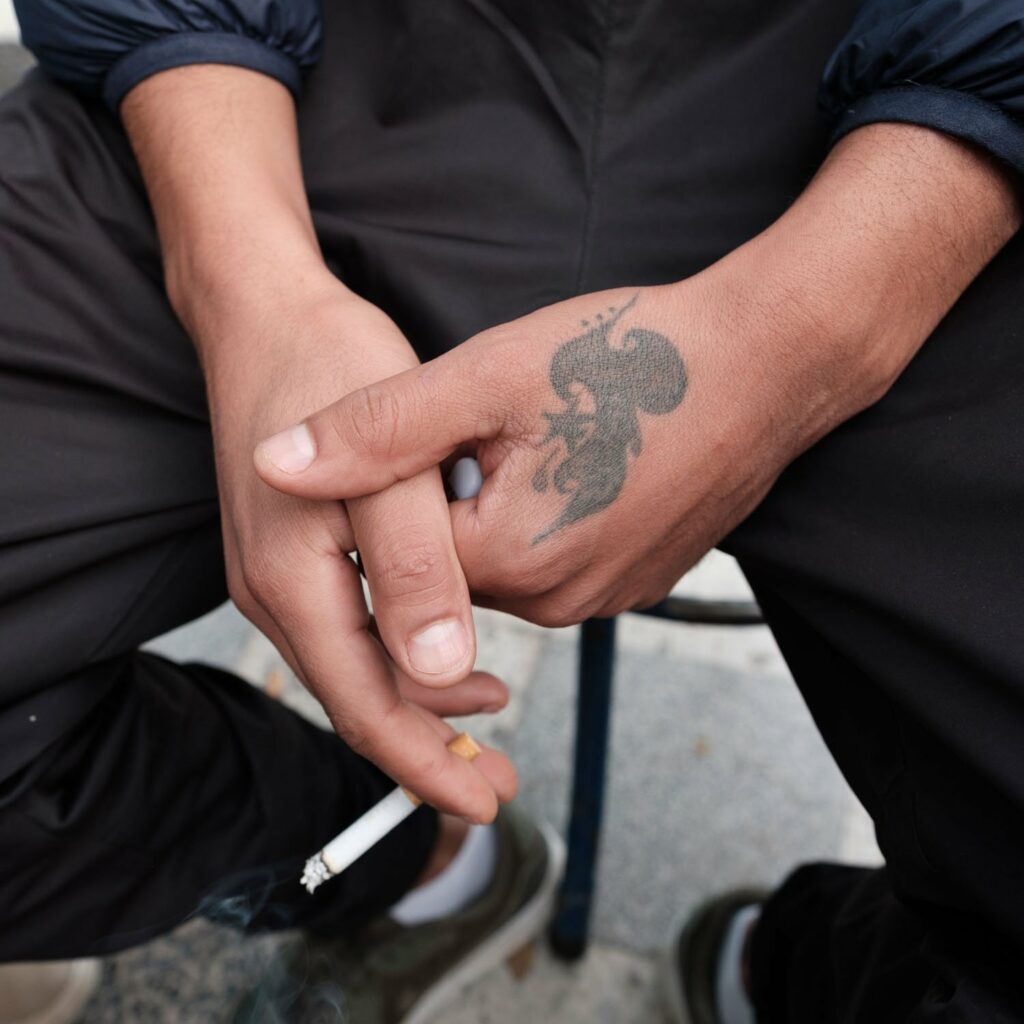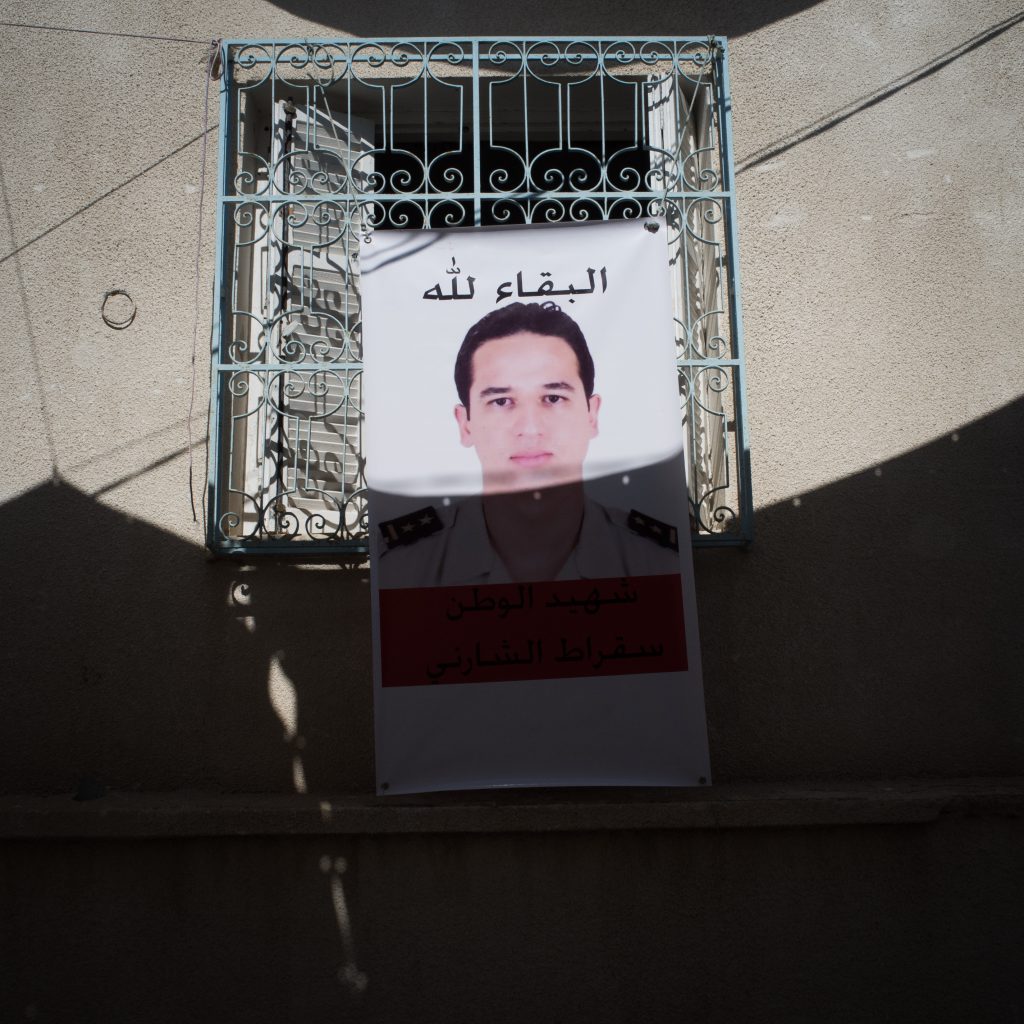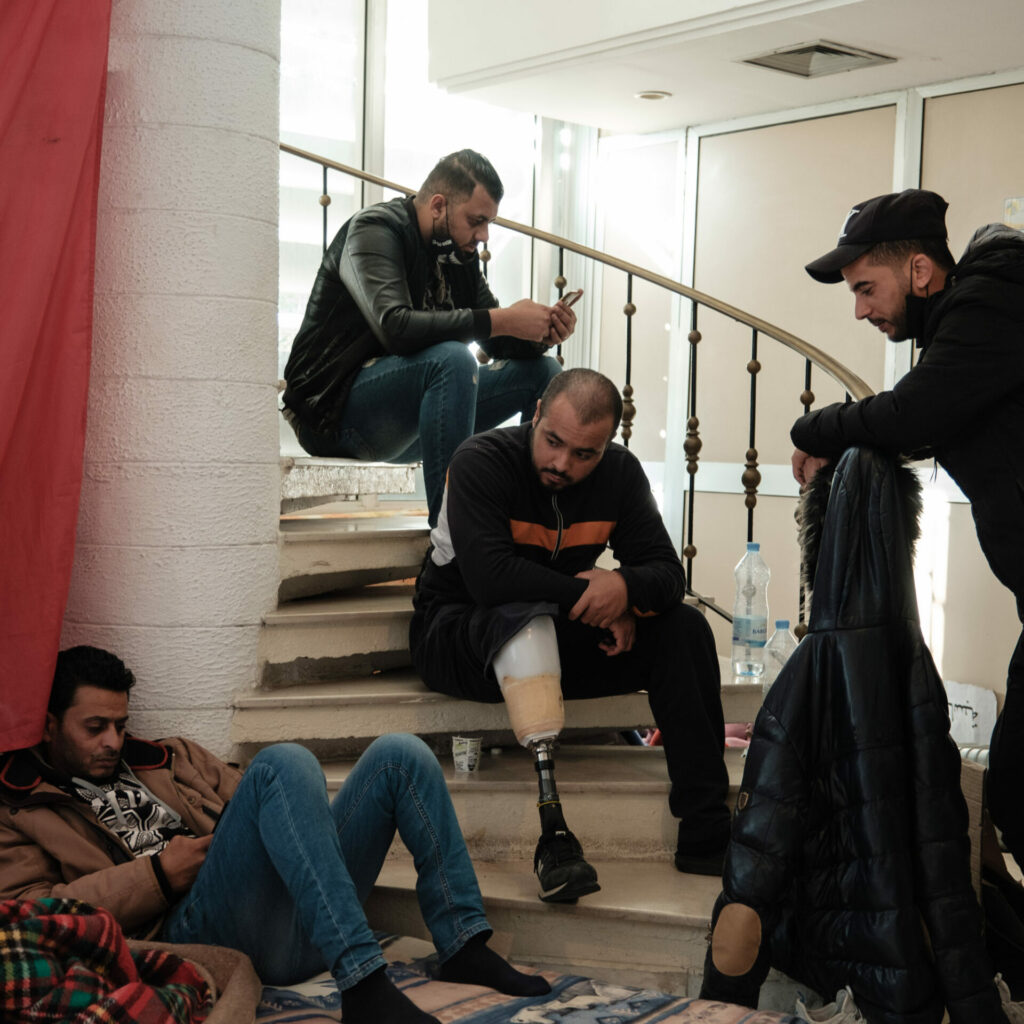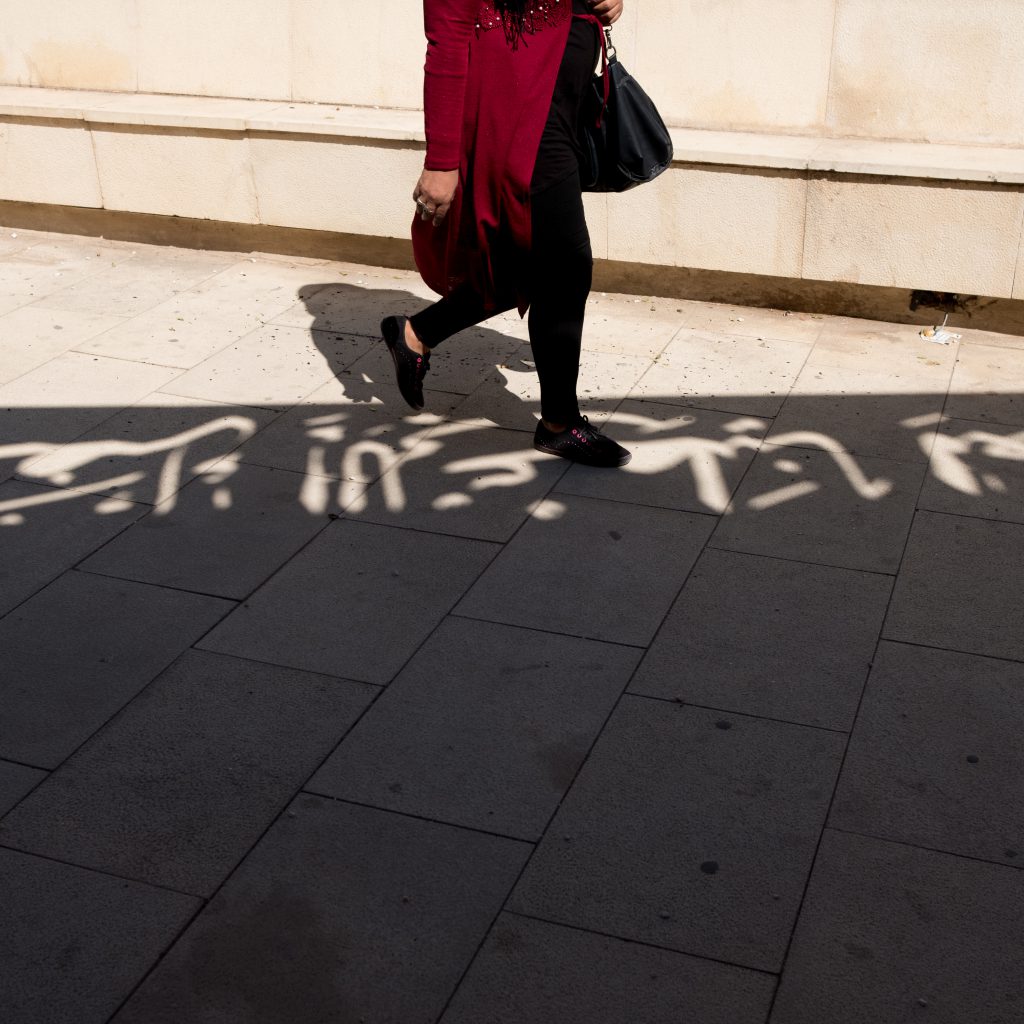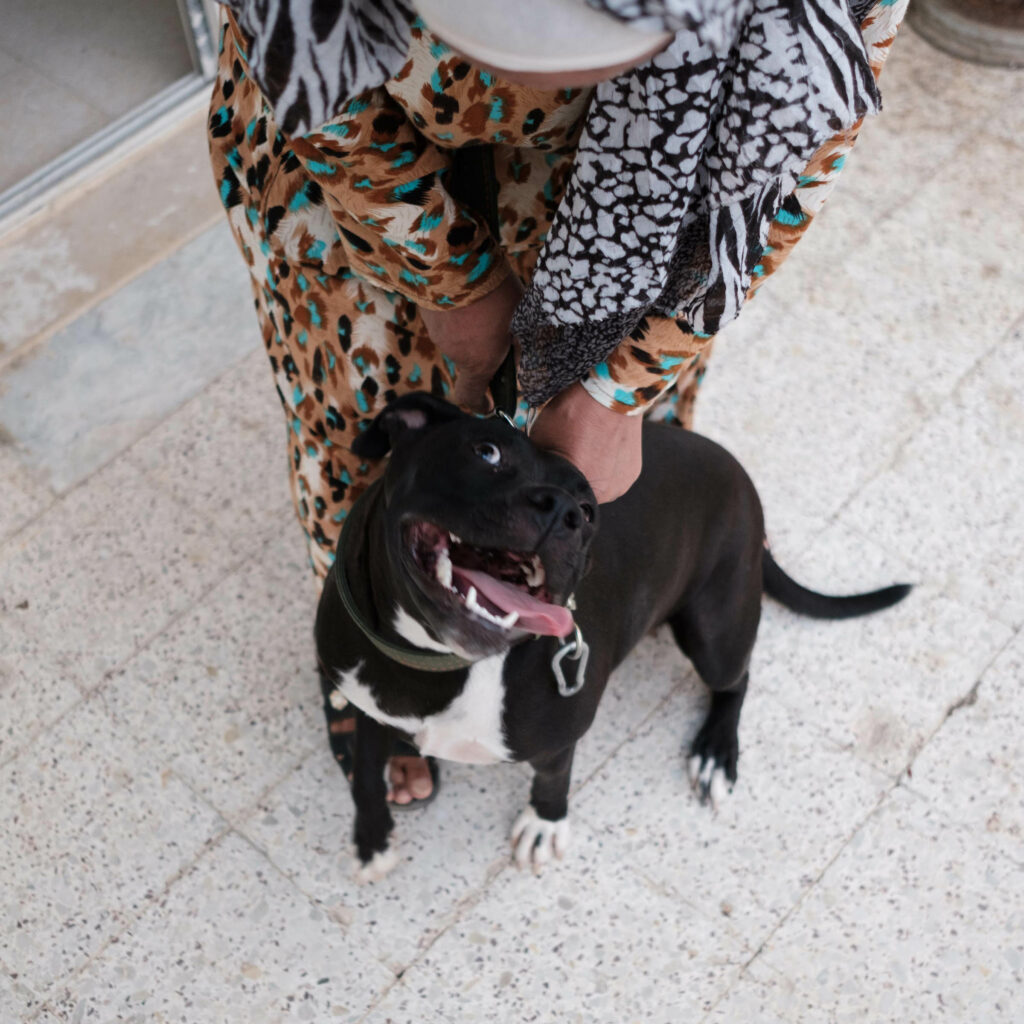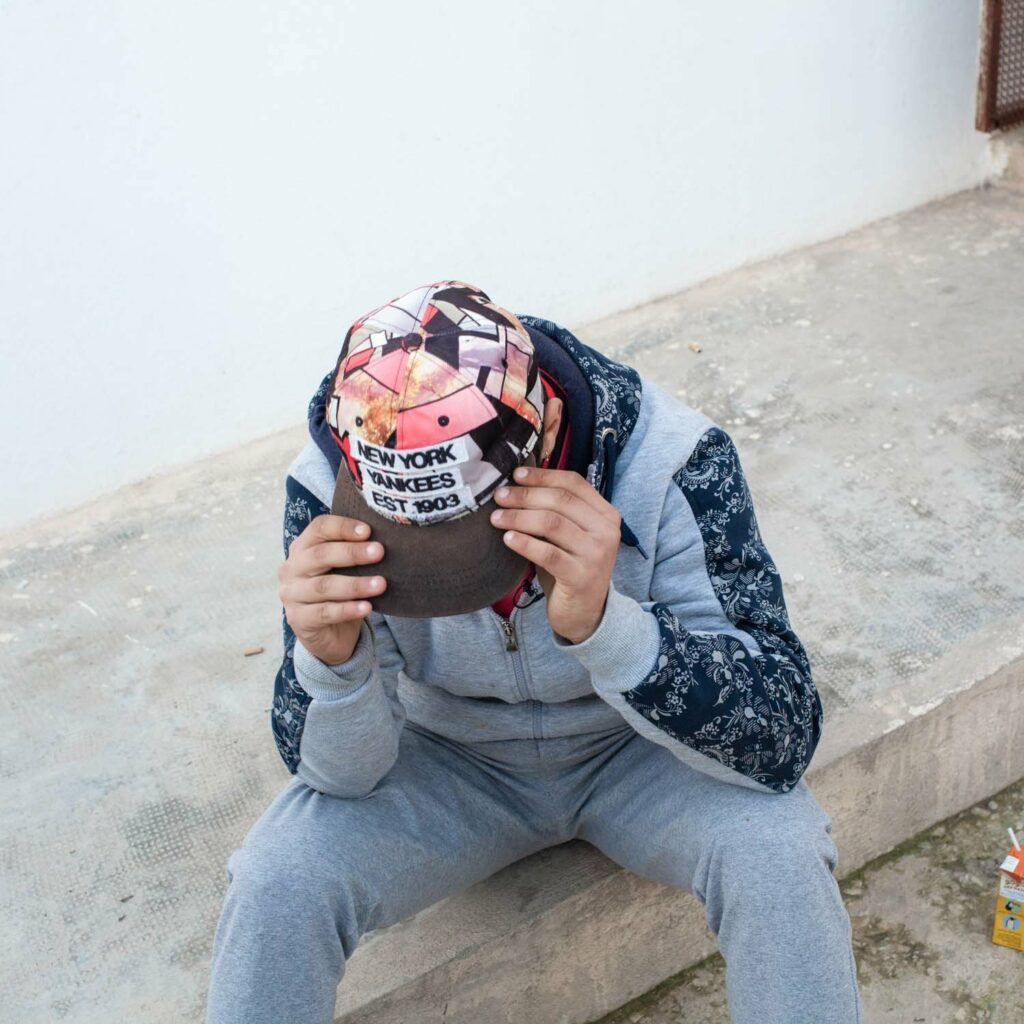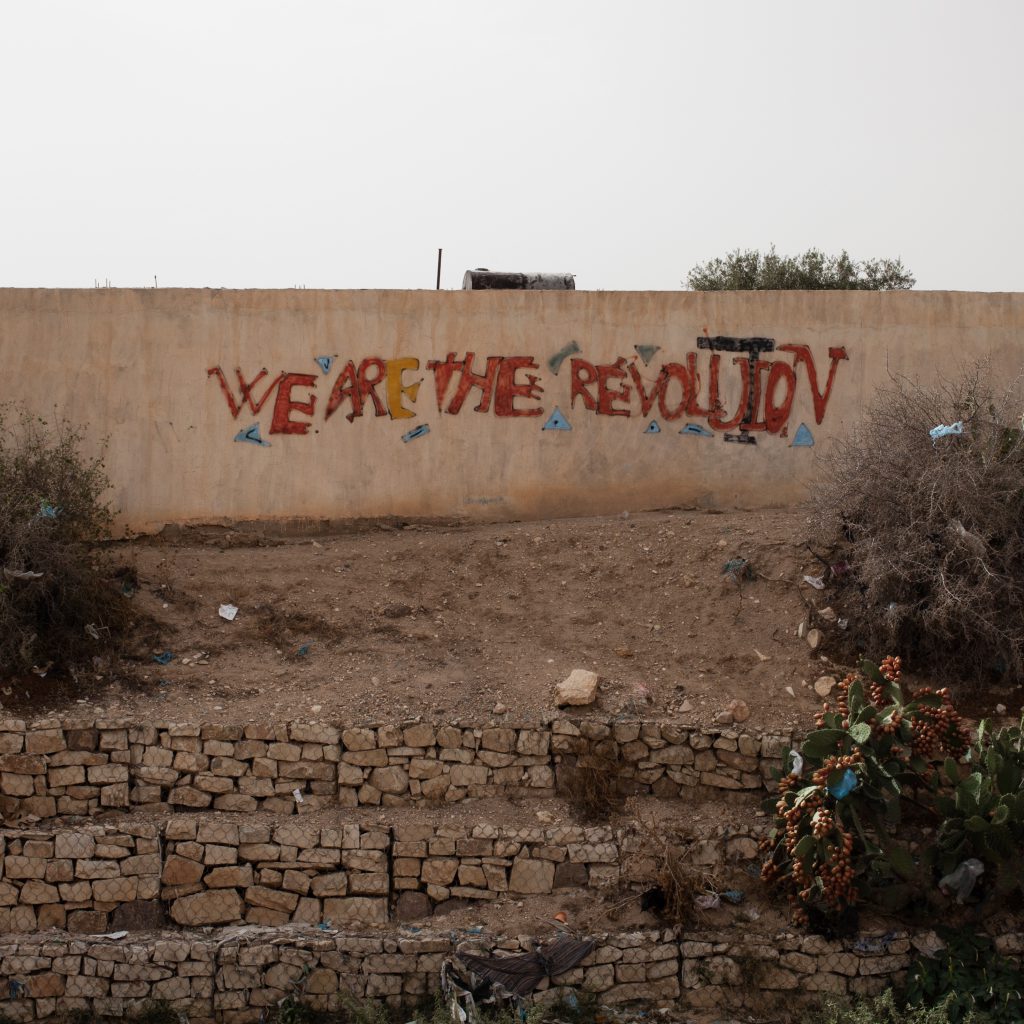You Will Never Walk alone
Daily Life in Tunisia during time of transition.
2011 – 2024
In 2014, at dawn, I was making my way through the wholesale market of Fouchana, south of Tunis, alongside Emna Mansour Karoui, the first woman to run for the Tunisian presidency. Between two stacks of crates, a graffiti leapt out on a grey low wall: YOU WILL NEVER WALK ALONE. The words struck me. Despite the hardships and the deep disquiet that prevails, every solitary step taken by Tunisia’s youth feeds into a collective march toward greater rights, freedom, and dignity.
“You Will Never Walk Alone” explores hopes and frustrations of a Tunisian caught between the promise of a new world and the reality of an unstable present. From 2011 to 2024, the series follows bodies in motion, suspended voices, and gazes stretched toward an elsewhere (geographical, social, or intimate) where each person seeks a place that keeps slipping away. The theme of displacement is central here. Even if it is not reduced to exile.it becomes a back-and-forth between self and collective, a way of inhabiting the present when points of reference collapse and the future recedes as one approaches it.
In the wake of the revolution, euphoria filled the streets. Walls became scores. Then, time slowed, disillusion seeped in and energy shifted toward other terrains: margins, peripheries, thresholds. Ending sometimes in exile. The series observes this almost tectonic shift that moves public space from the center to the interstices, where a young generation reinvents forms of presence and resistance.
Here, displacement is the friction between aspiration and resignation The portraits reveal a continual oscillation: staying, leaving, returning, projecting forward, attaching, fleeing. Faces move from light to shadow and gestures hesitate between anchoring and escape. Migrations are mental as much as physical, redrawing the emotional map of a country.
Displacement is social: persistent unemployment, an informal economy that pushes labor out of sight, constrained movement between city and countryside. It is also political: speech shifts from the street to the screen, from assemblies to personal narratives, from the shout to the murmur. It is intimate: dreams migrate from one continent to another, trust from one tomorrow to the next, identity from a fixed belonging to a moving and plural one. Almost suspended.
In the open architecture of public space, images interact with the changing light. This public space bears the traces of this uprising and of dreams that have been exhausted. It still bears witness to this resistance and this freedom that is gradually fading away.
“You Will Never Walk Alone” is a shared march. It advances with those who negotiate the gap between promise and proof, between the memory of a revolt and the invention of new forms of life. Displacement becomes a method: to outwit inertia, escape marginalization, and attempt to rewrite the map of a livable future. In these photo essay, nothing is fixed: time shifts, light tilts, bodies relearn the geography of dignity.
